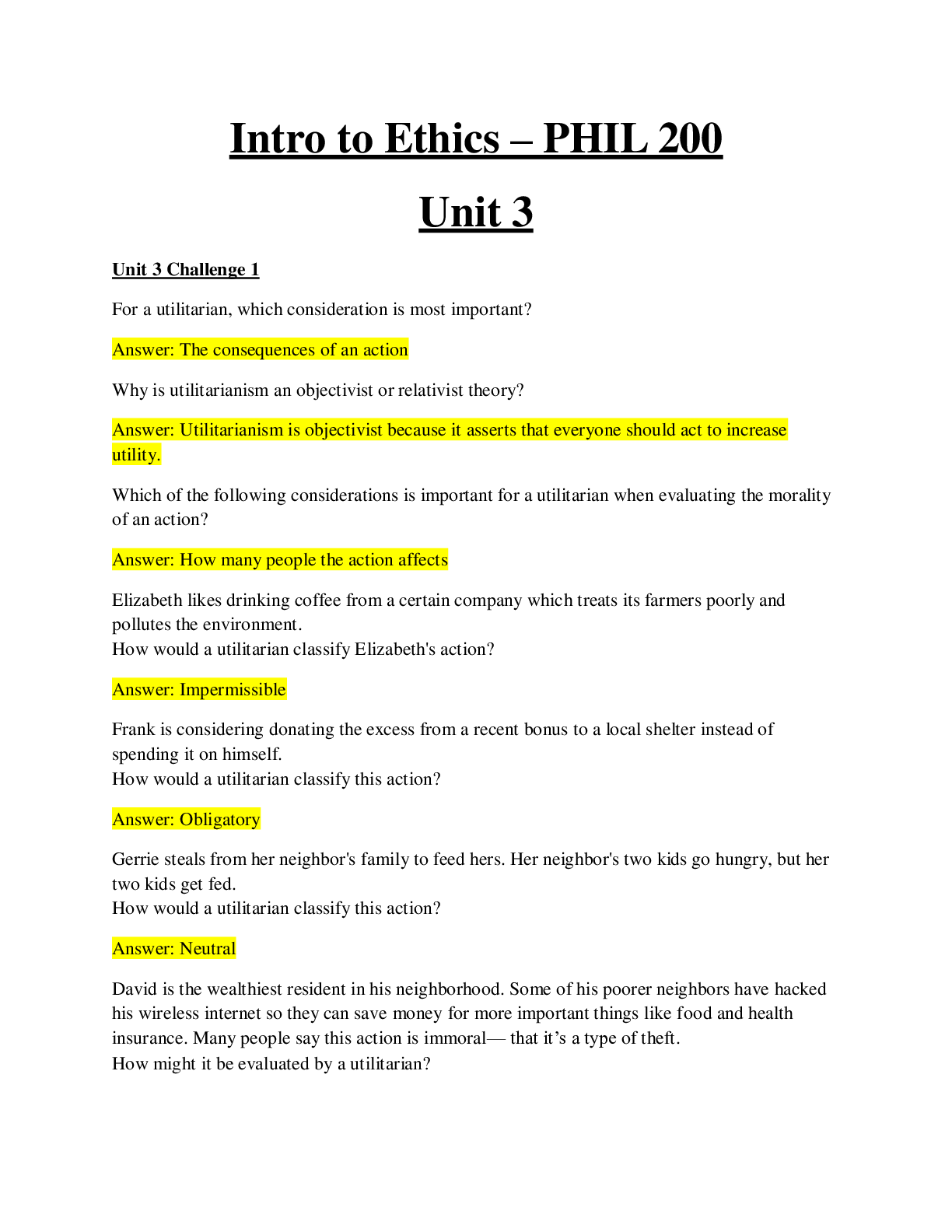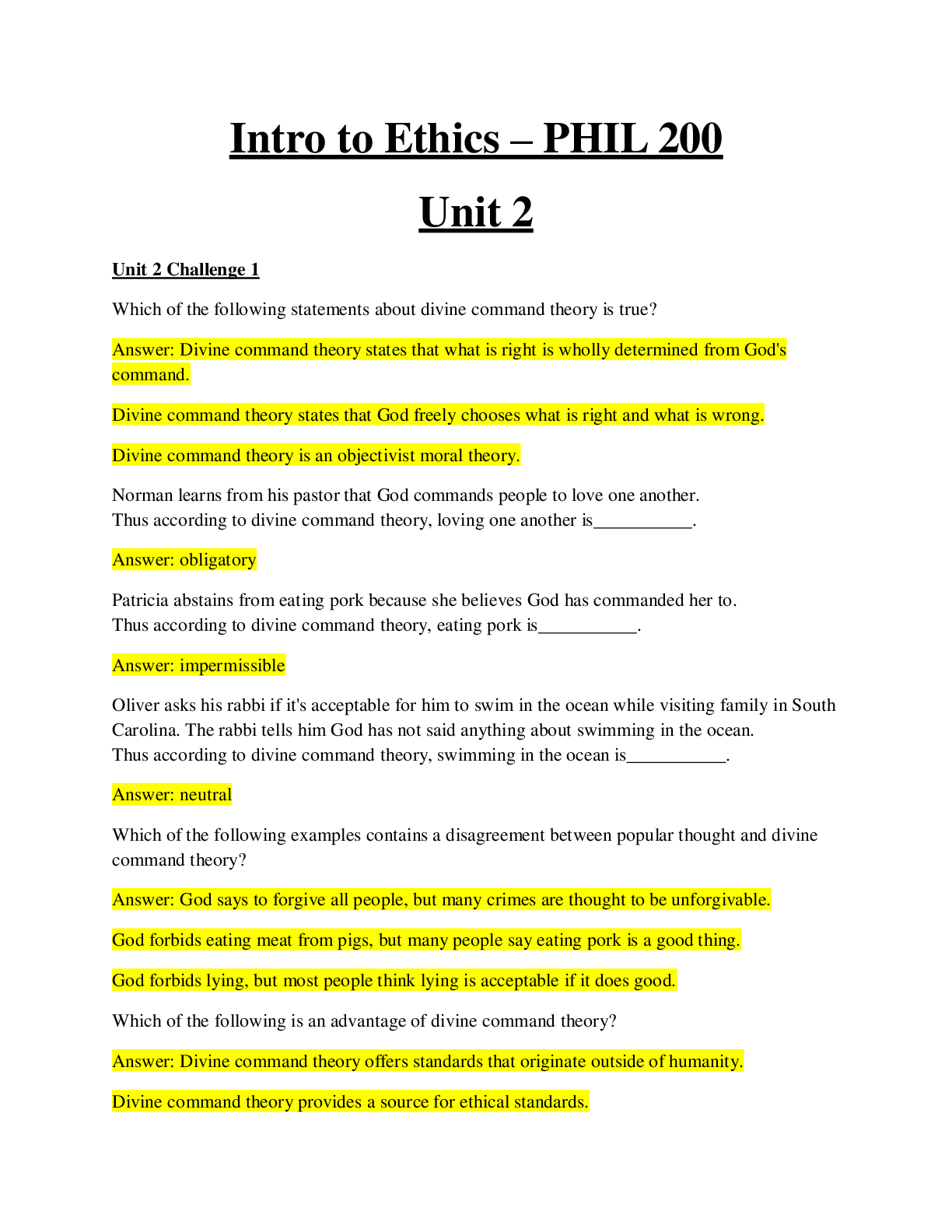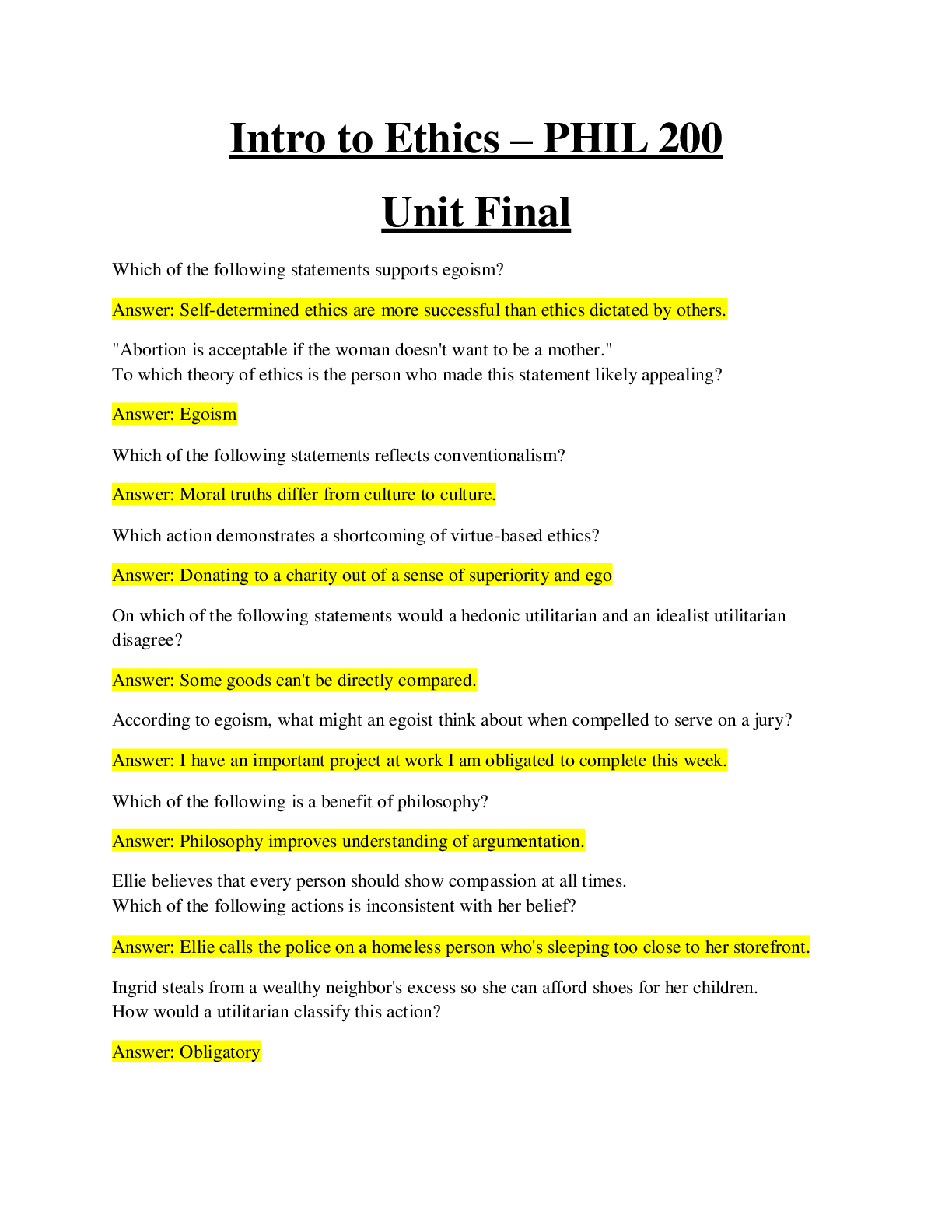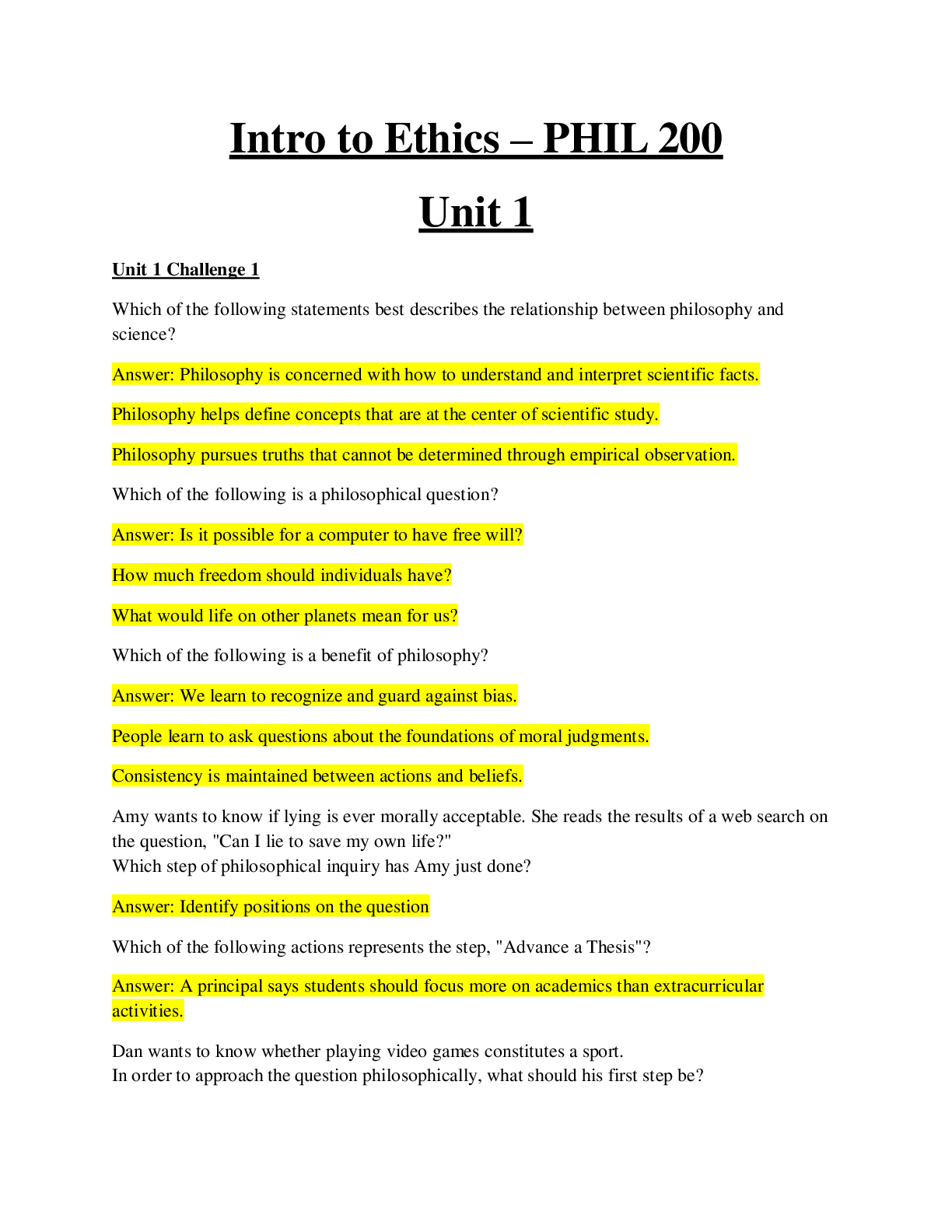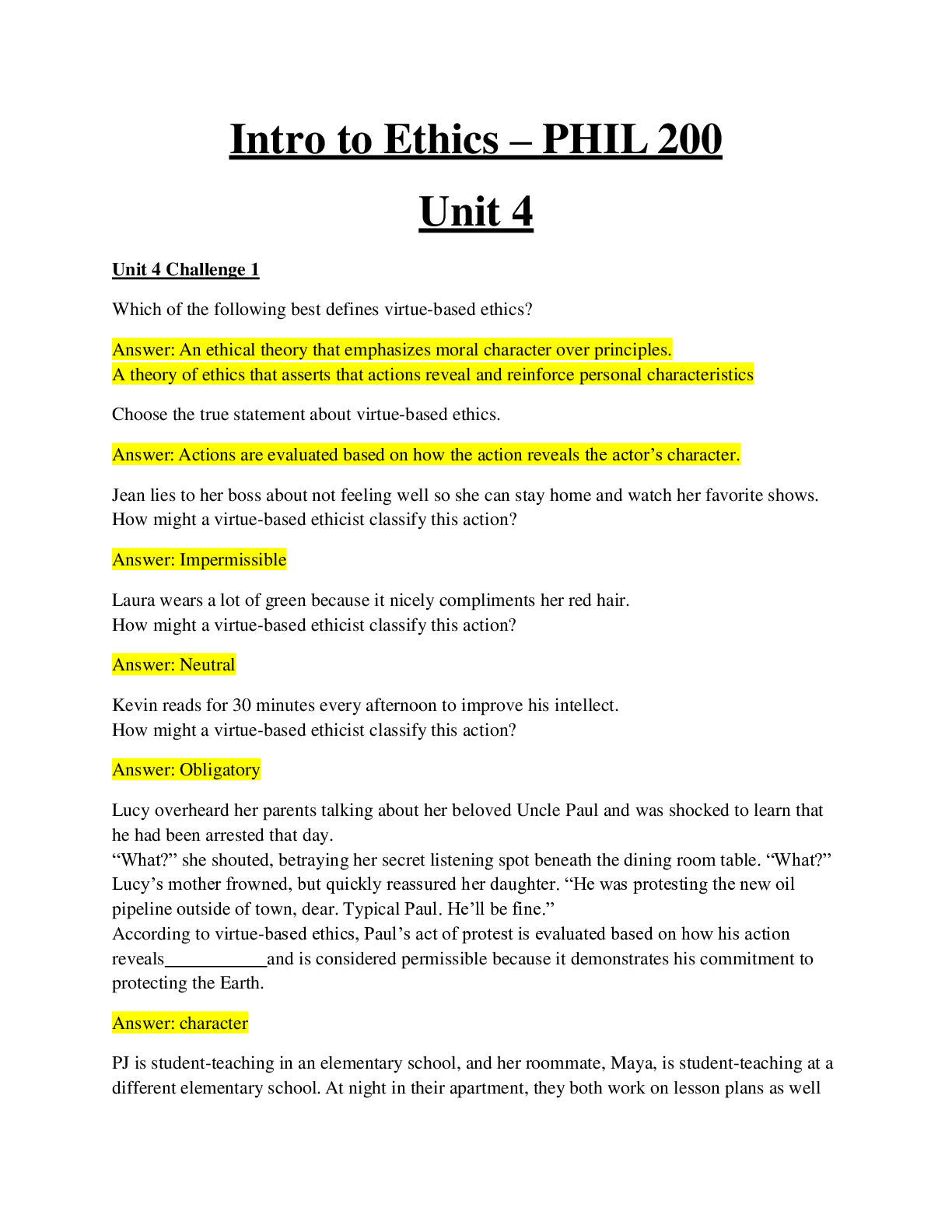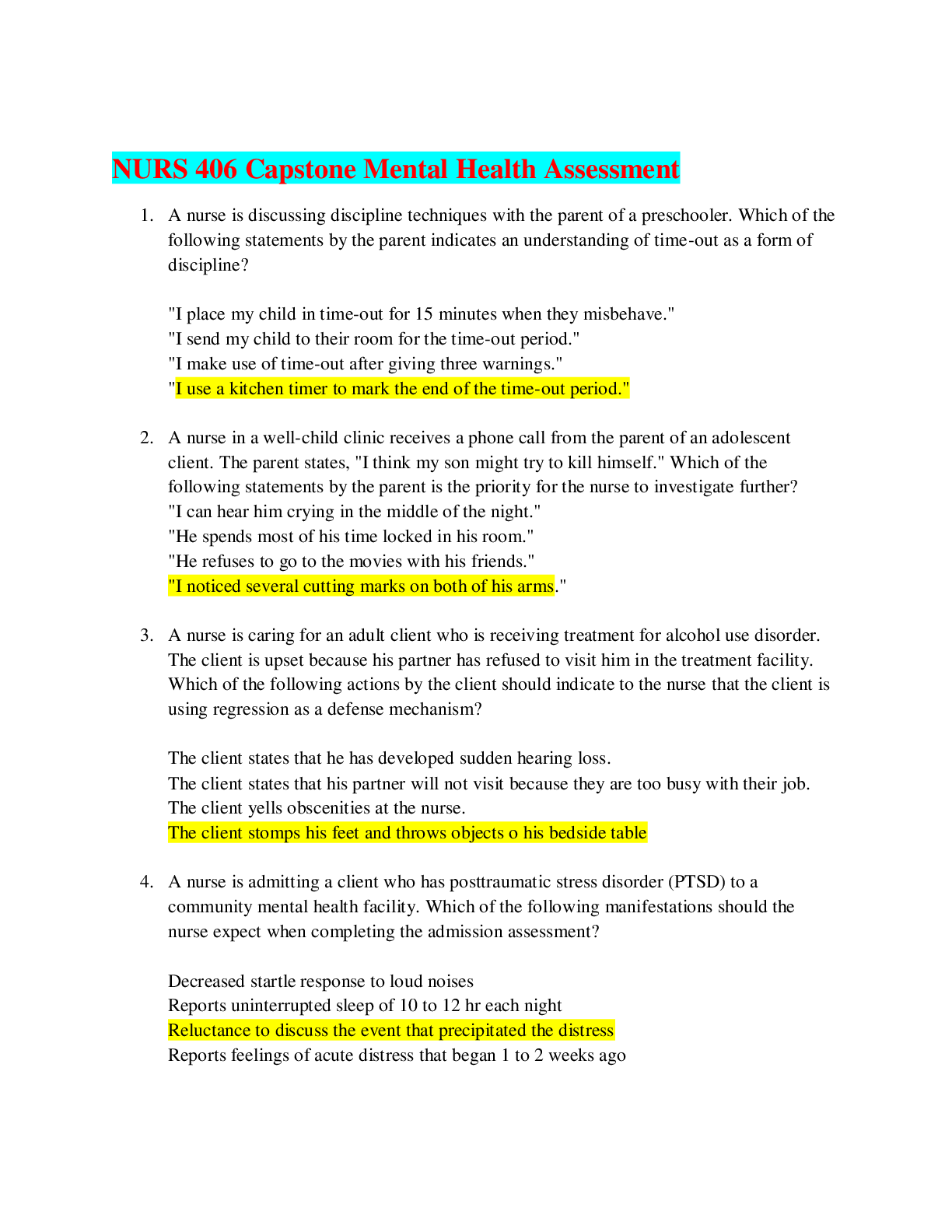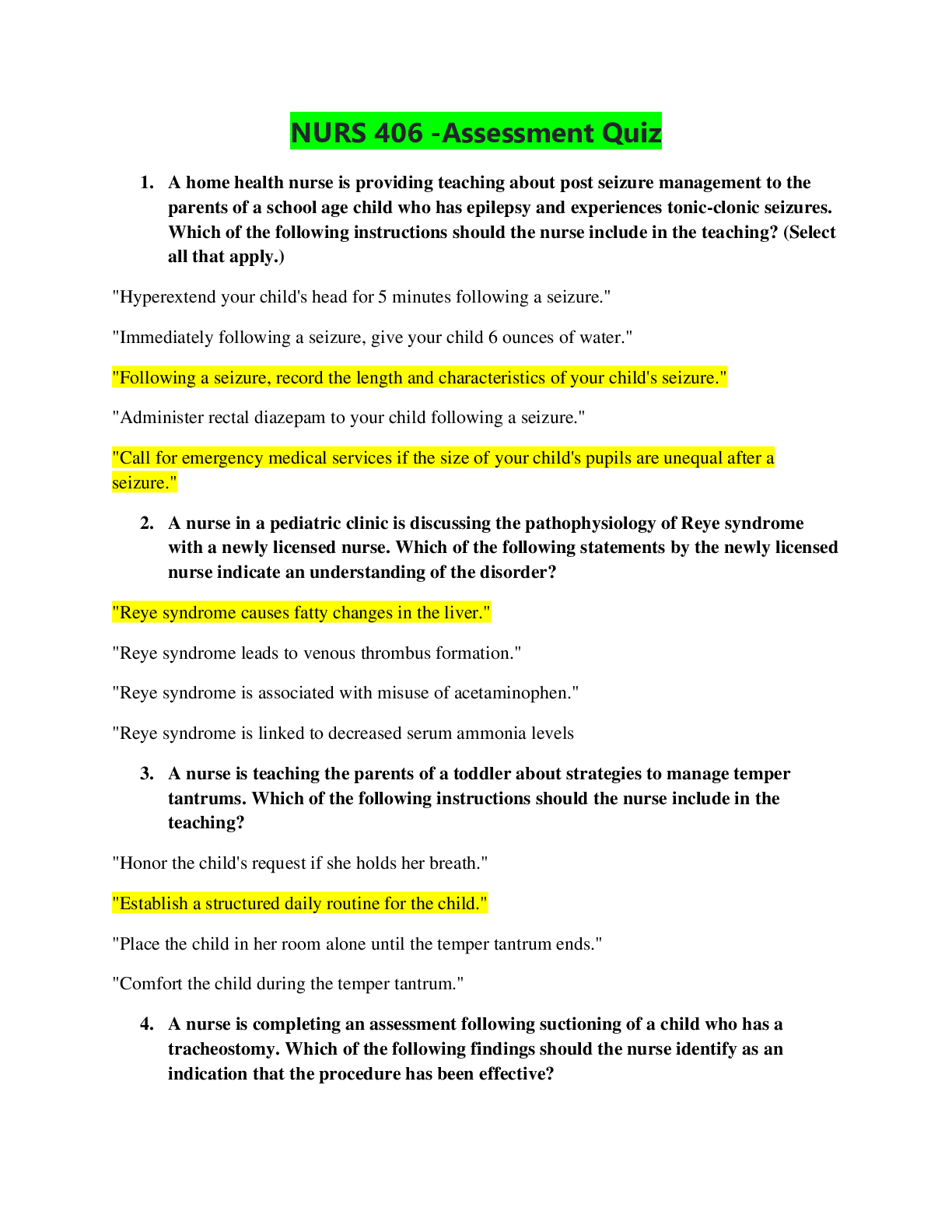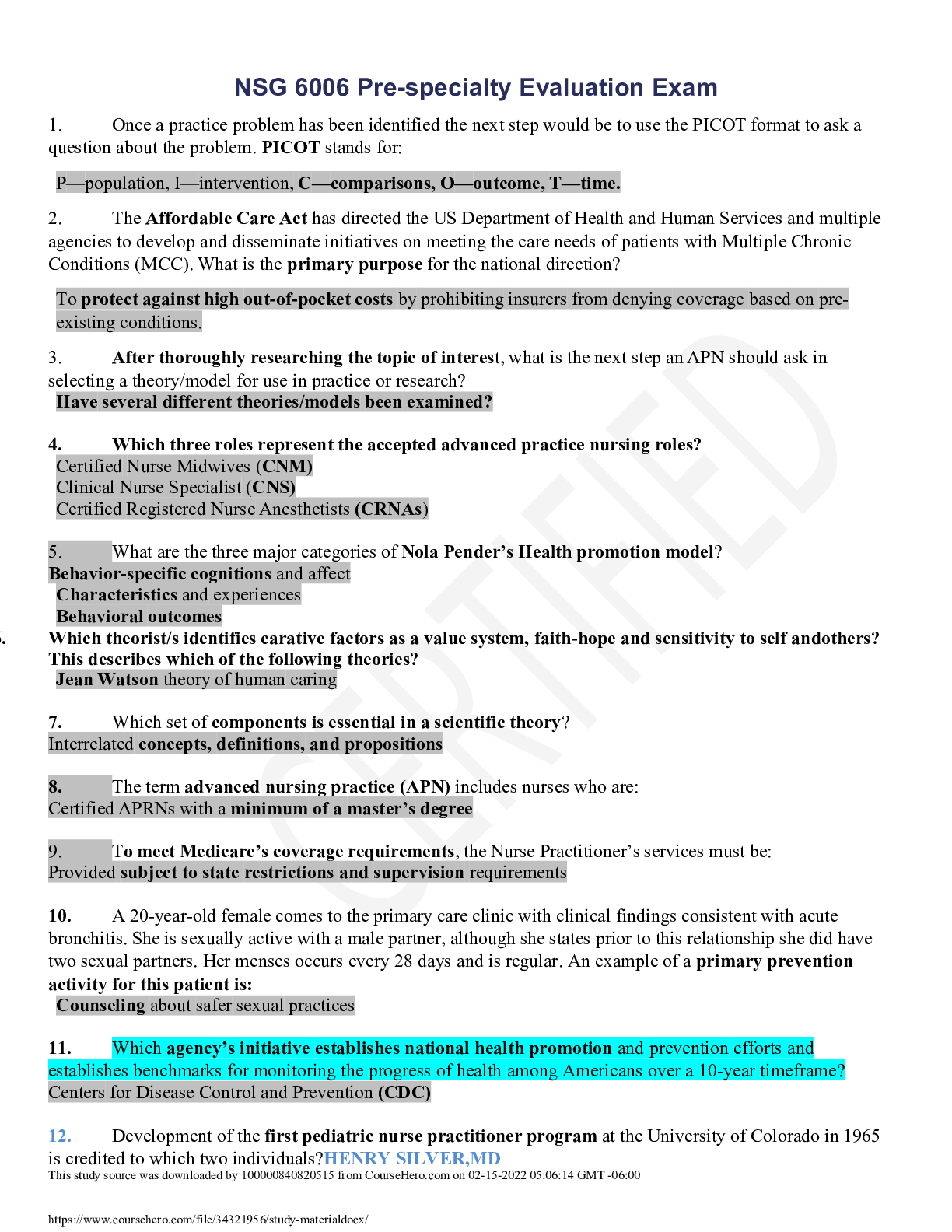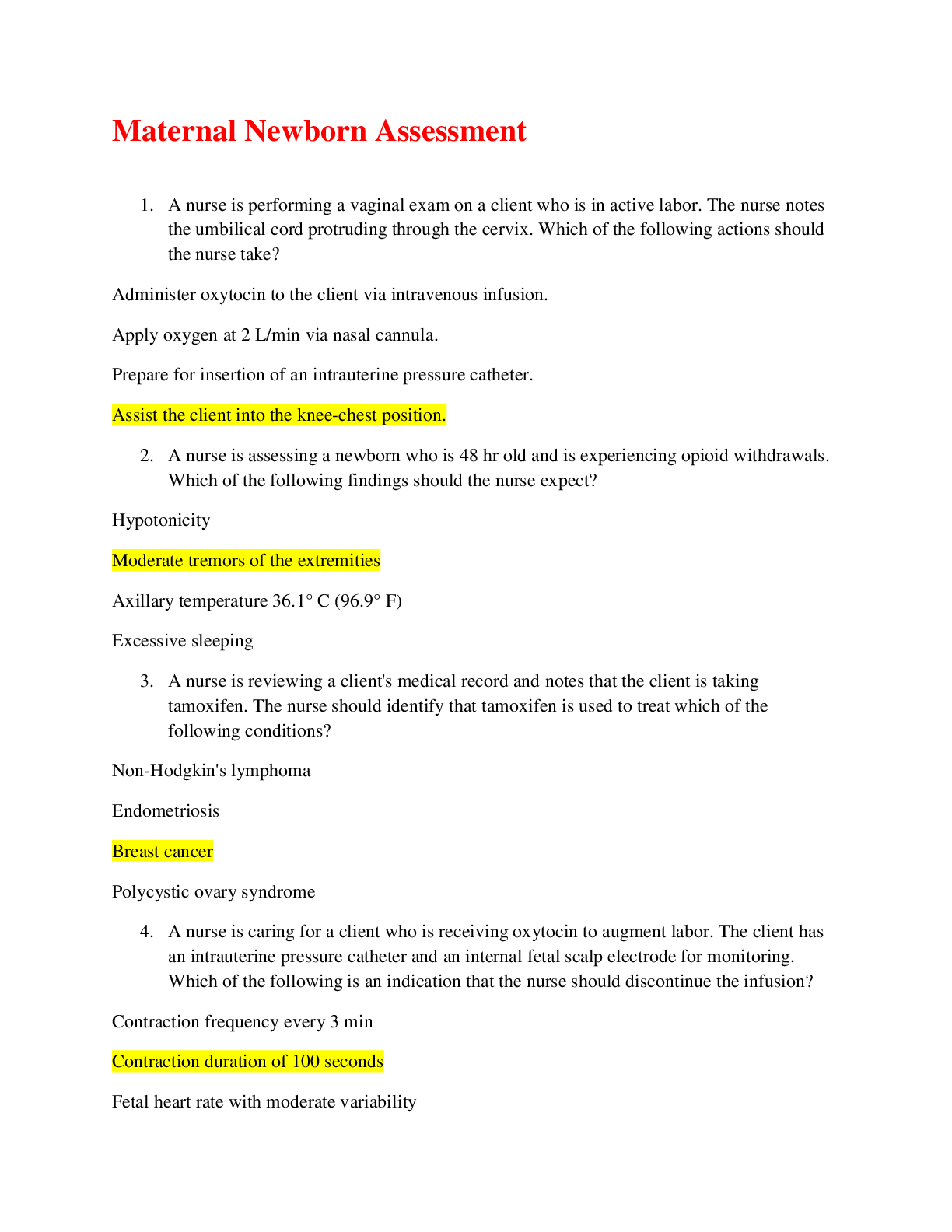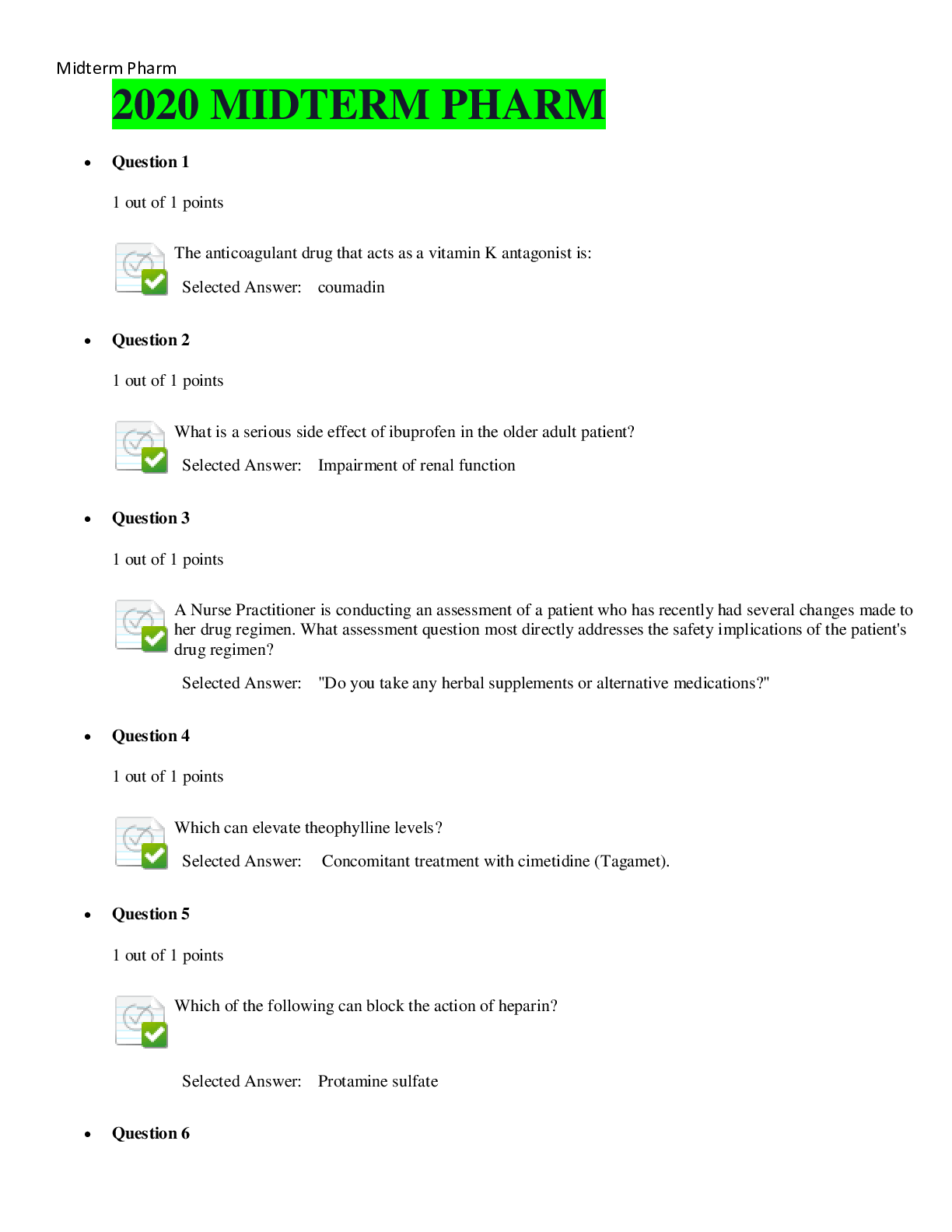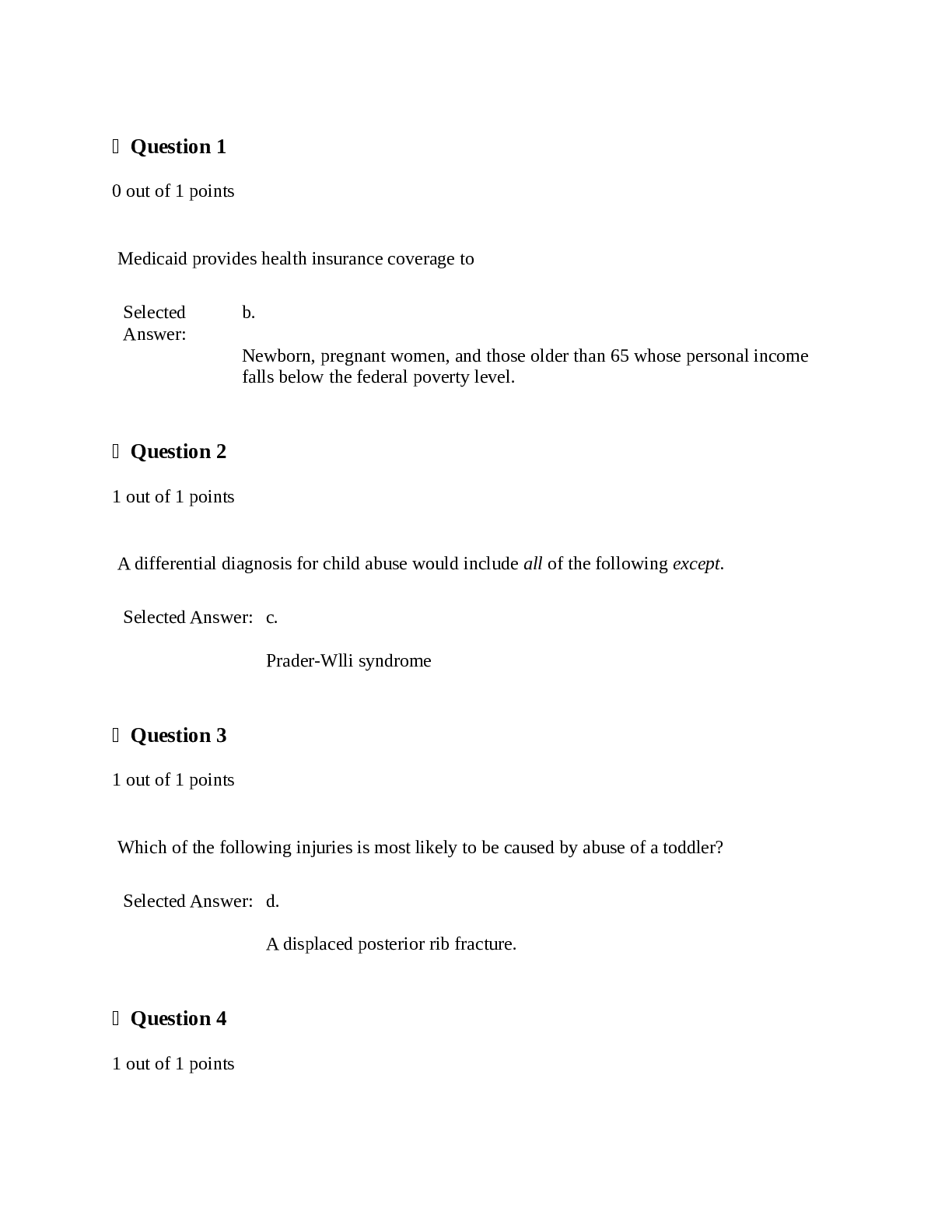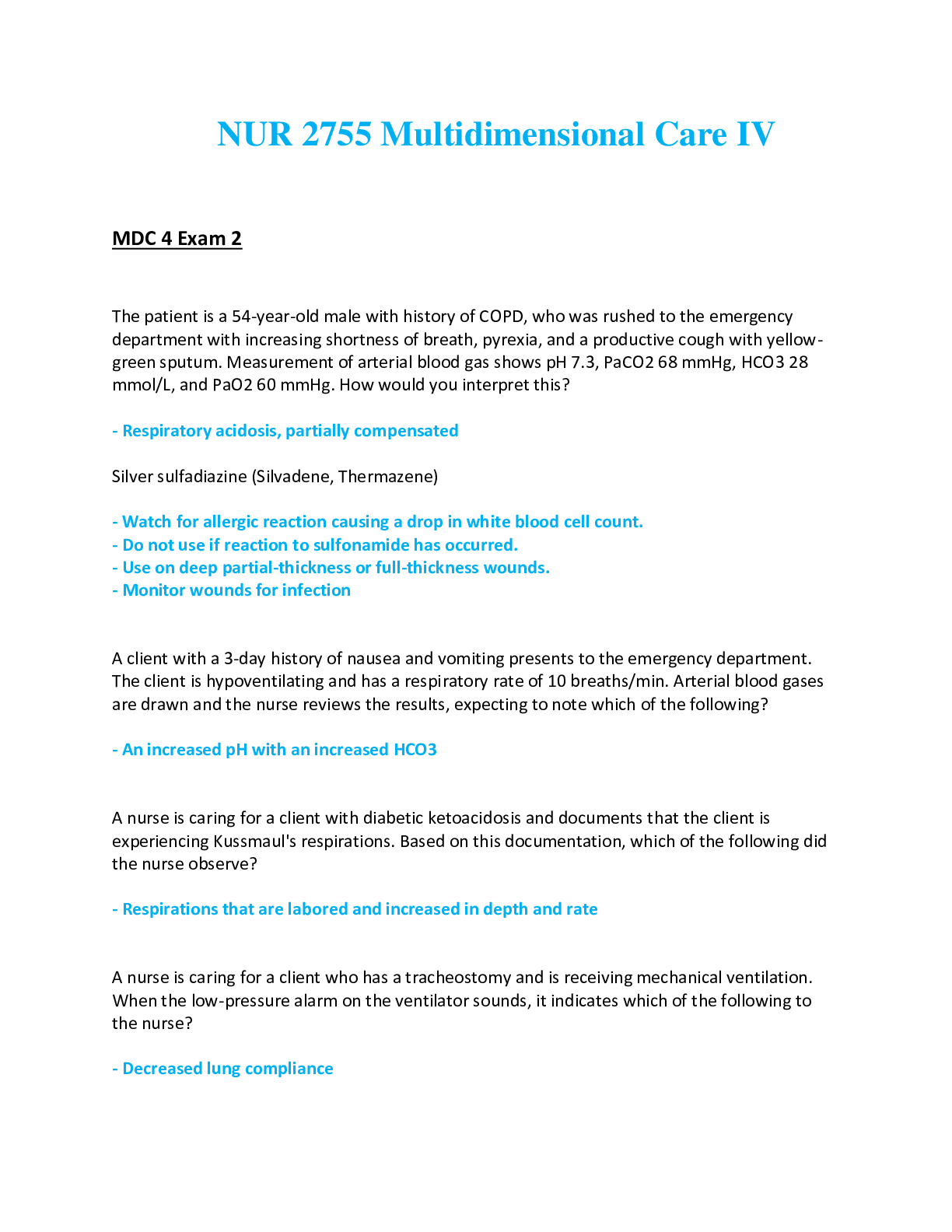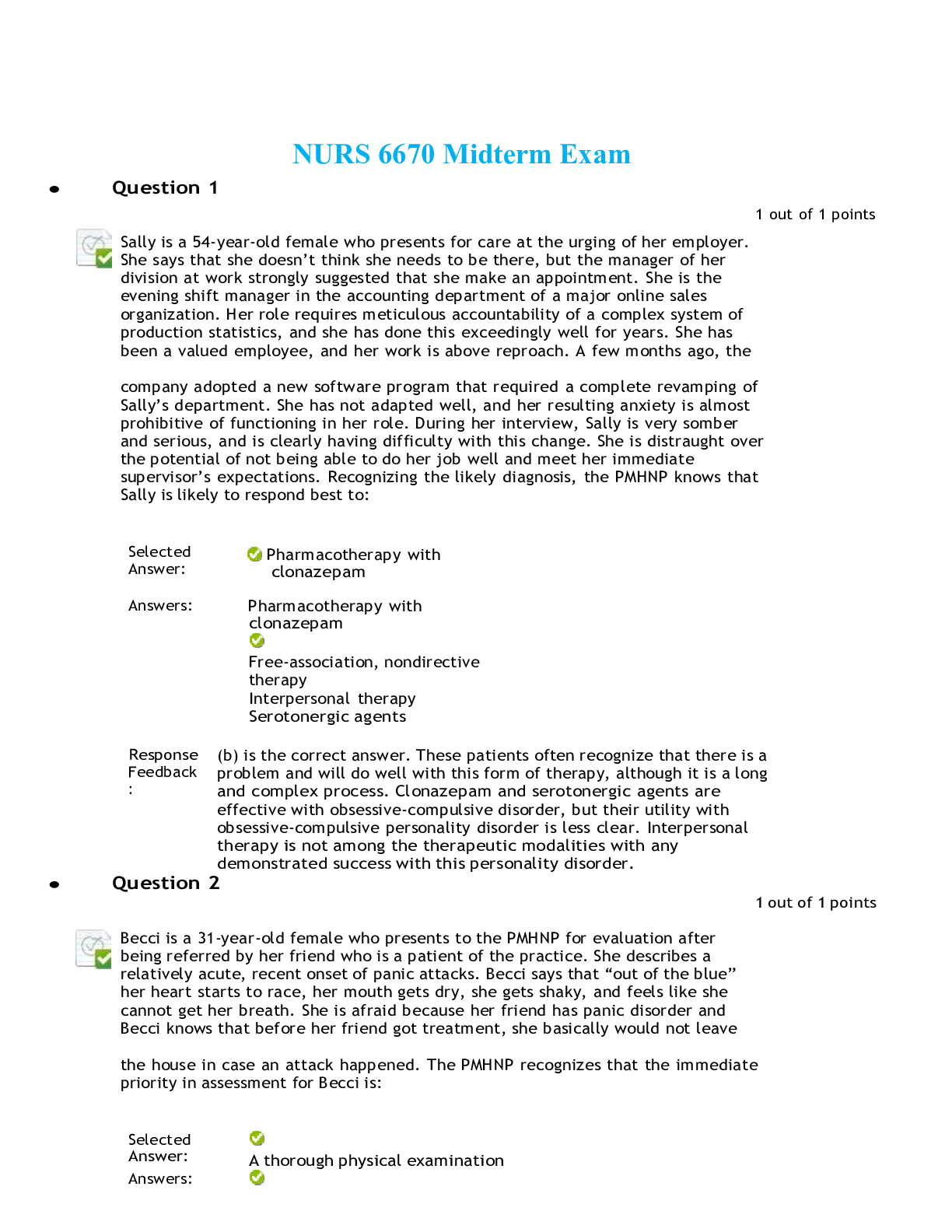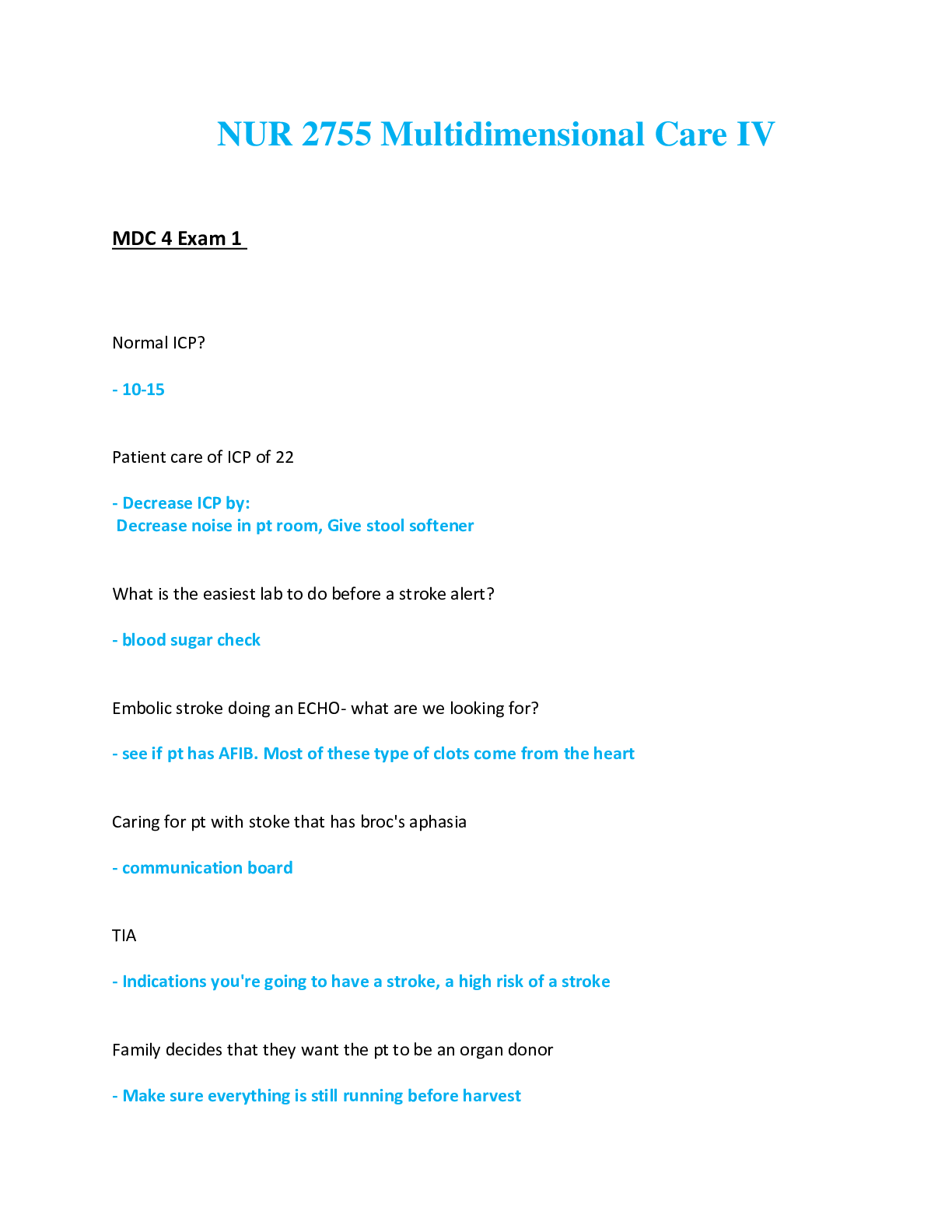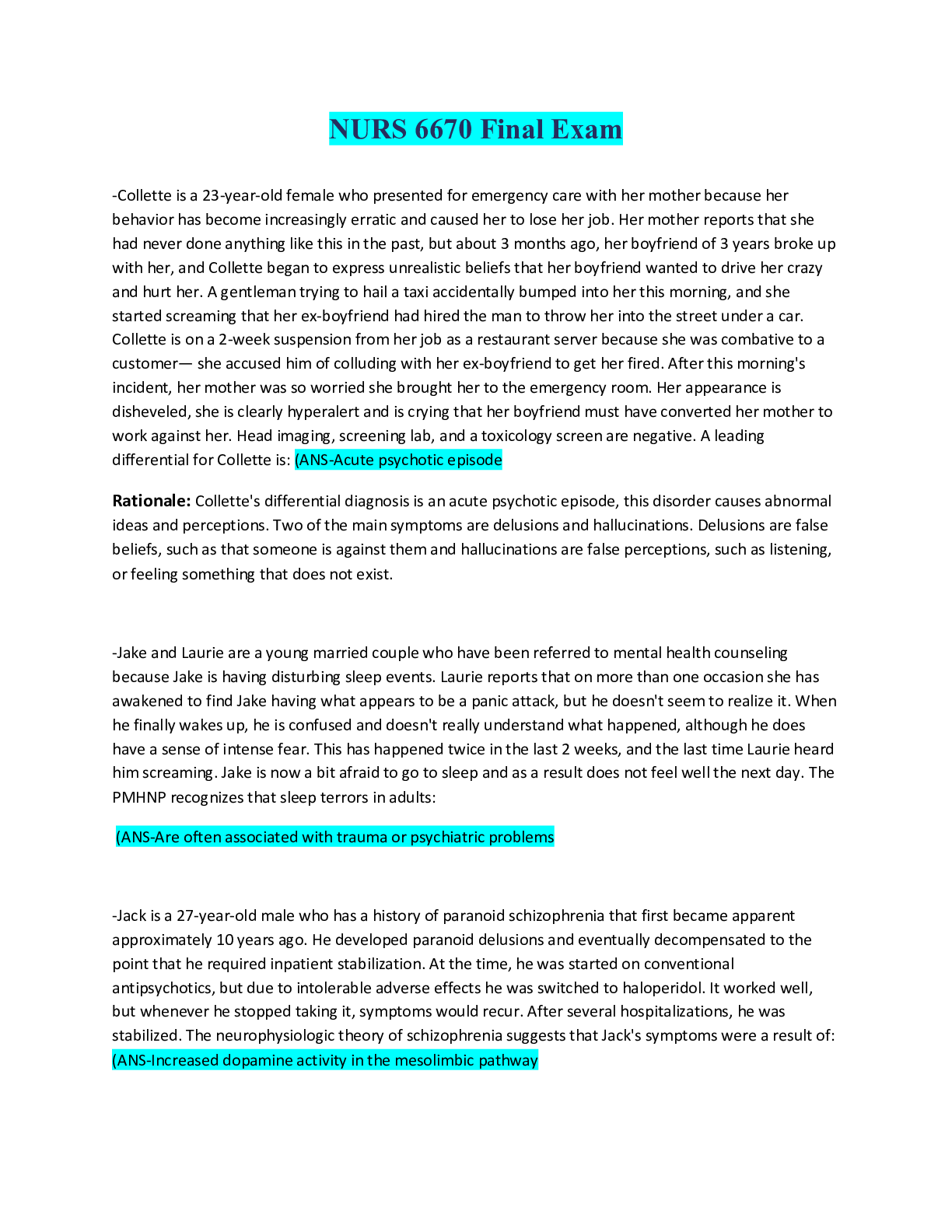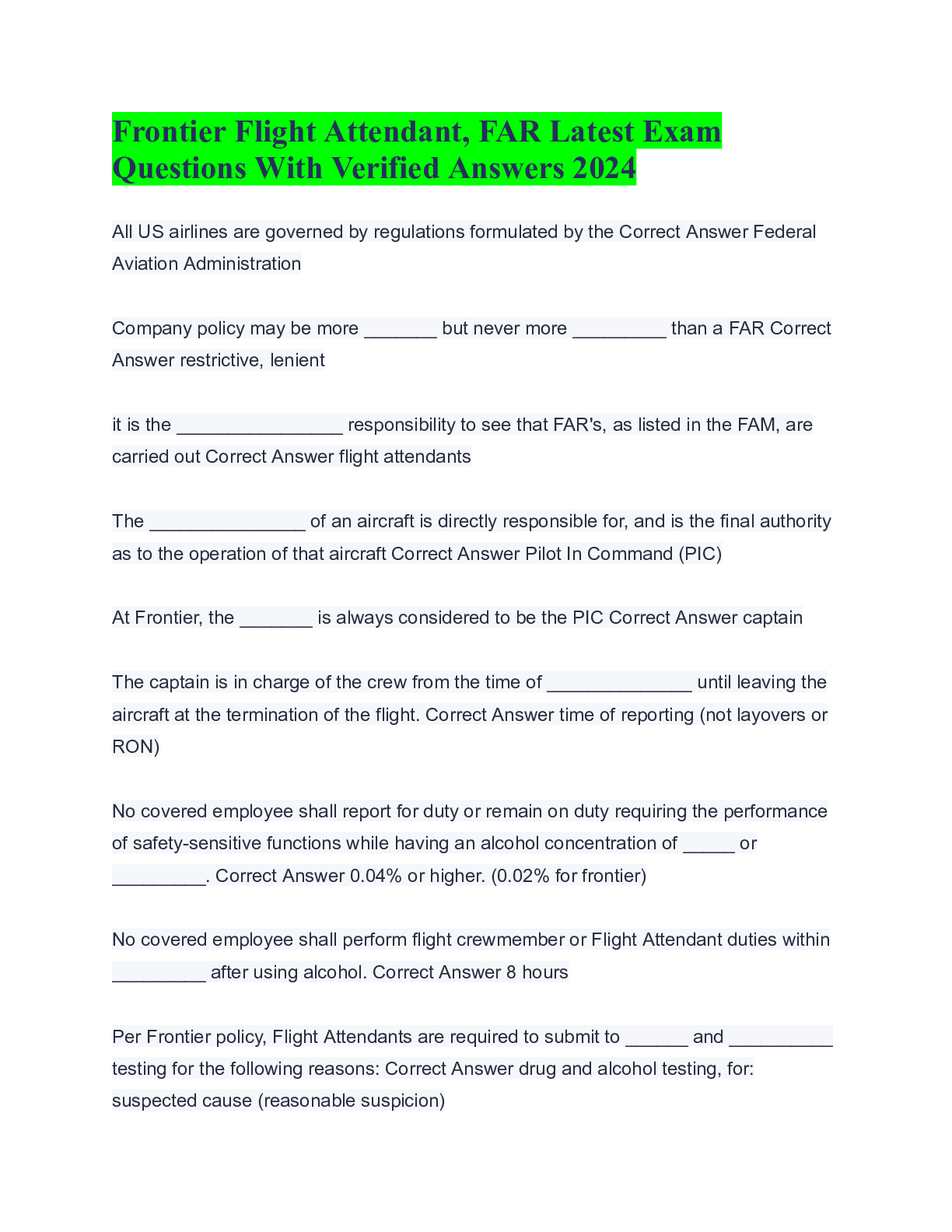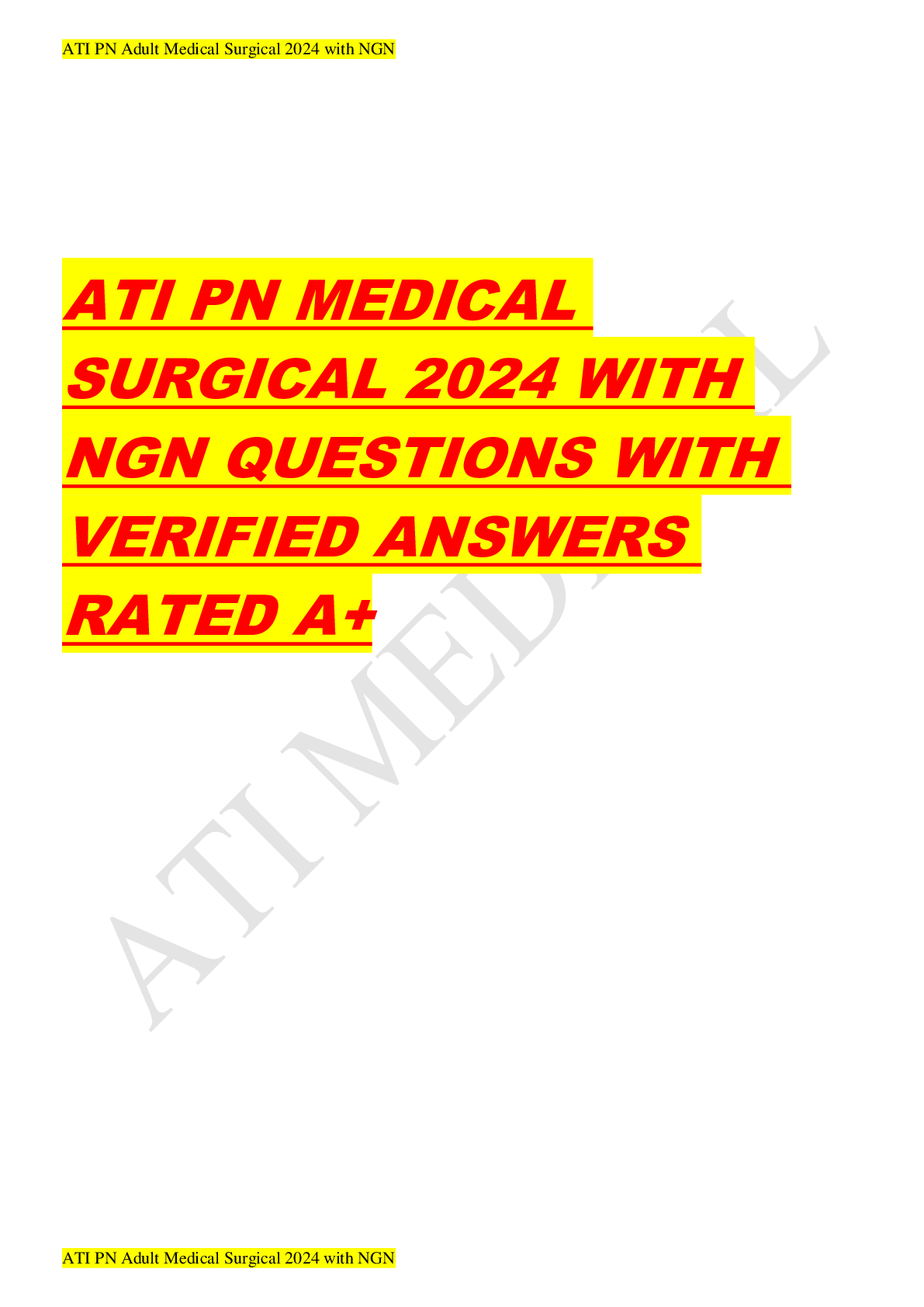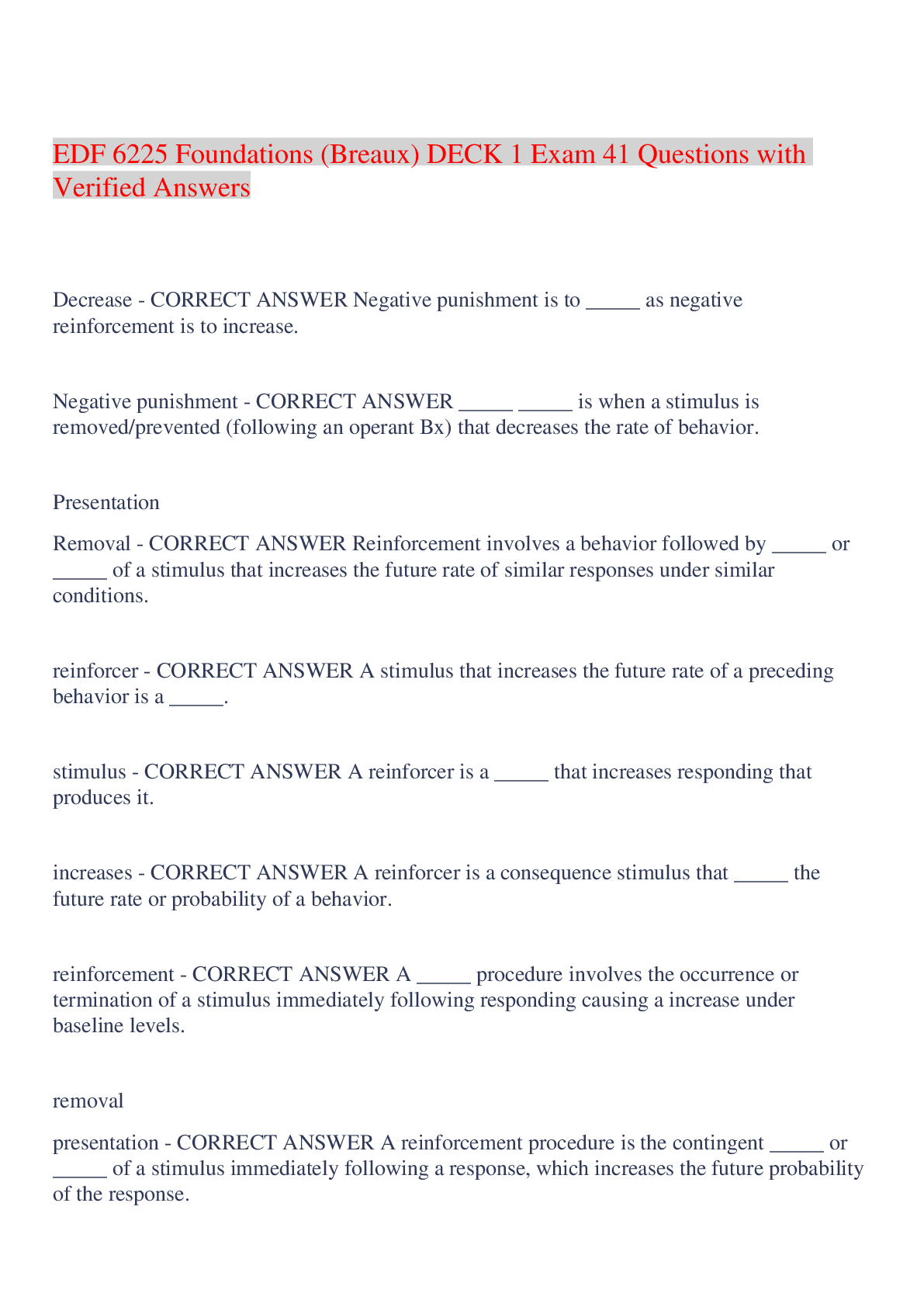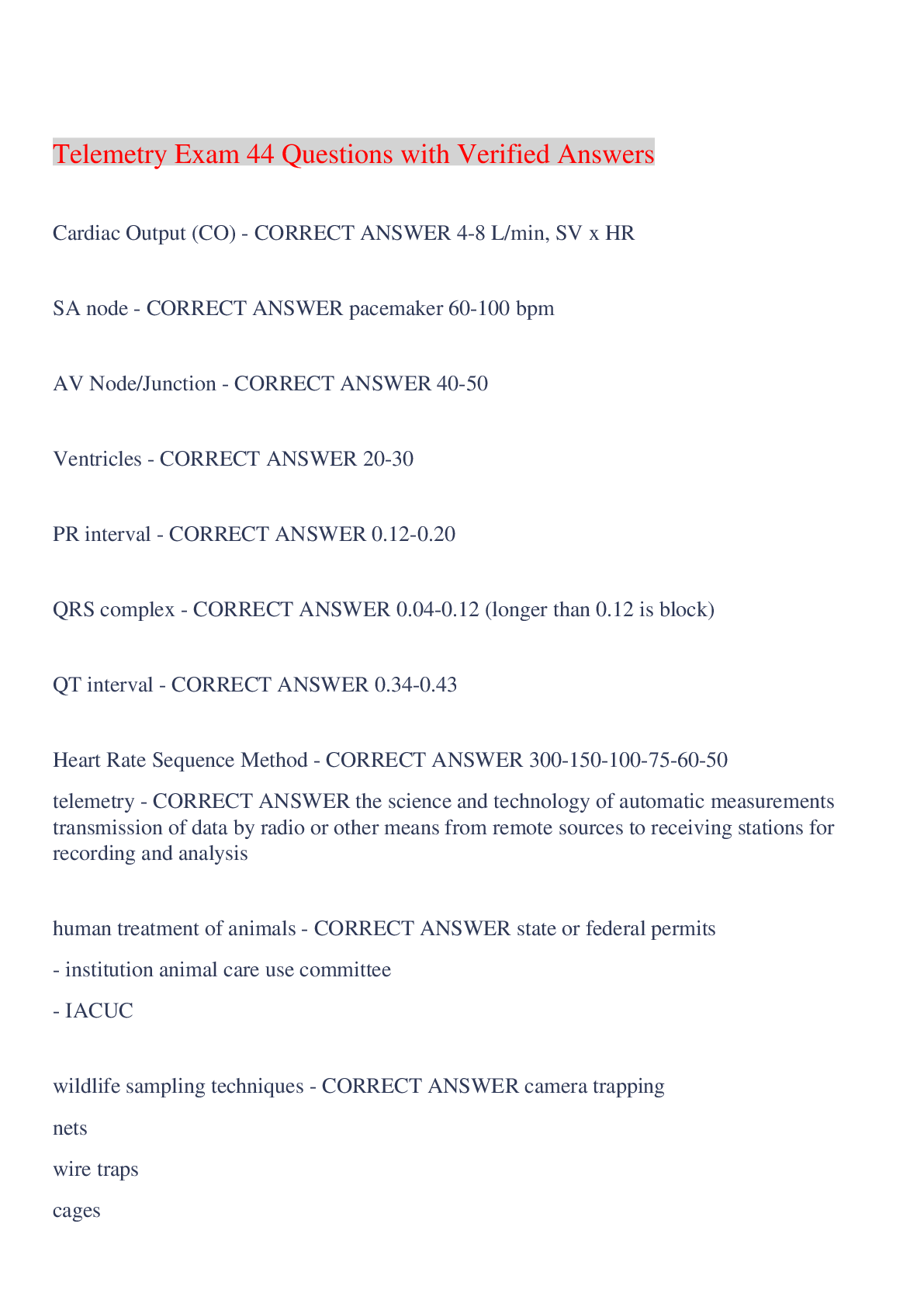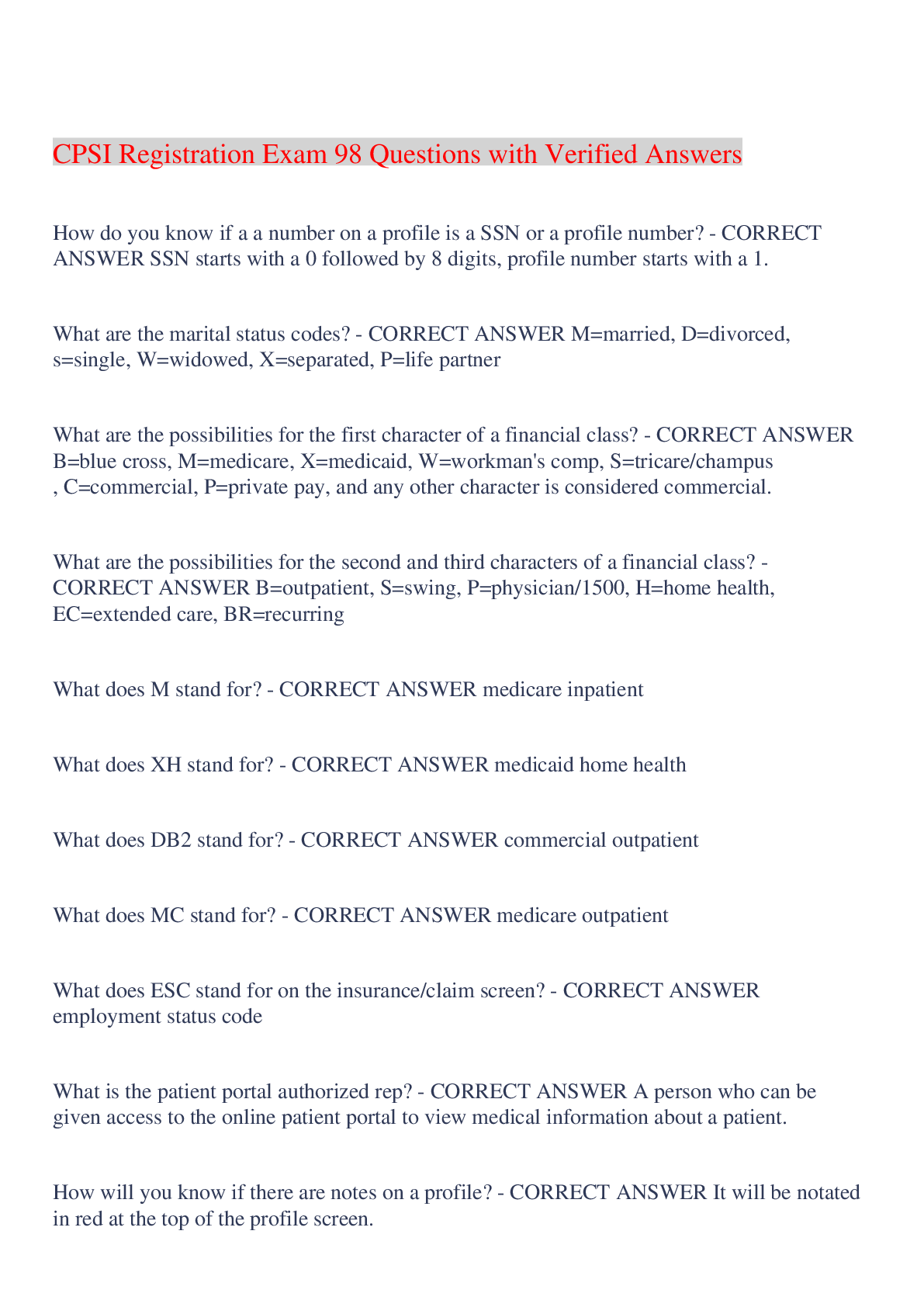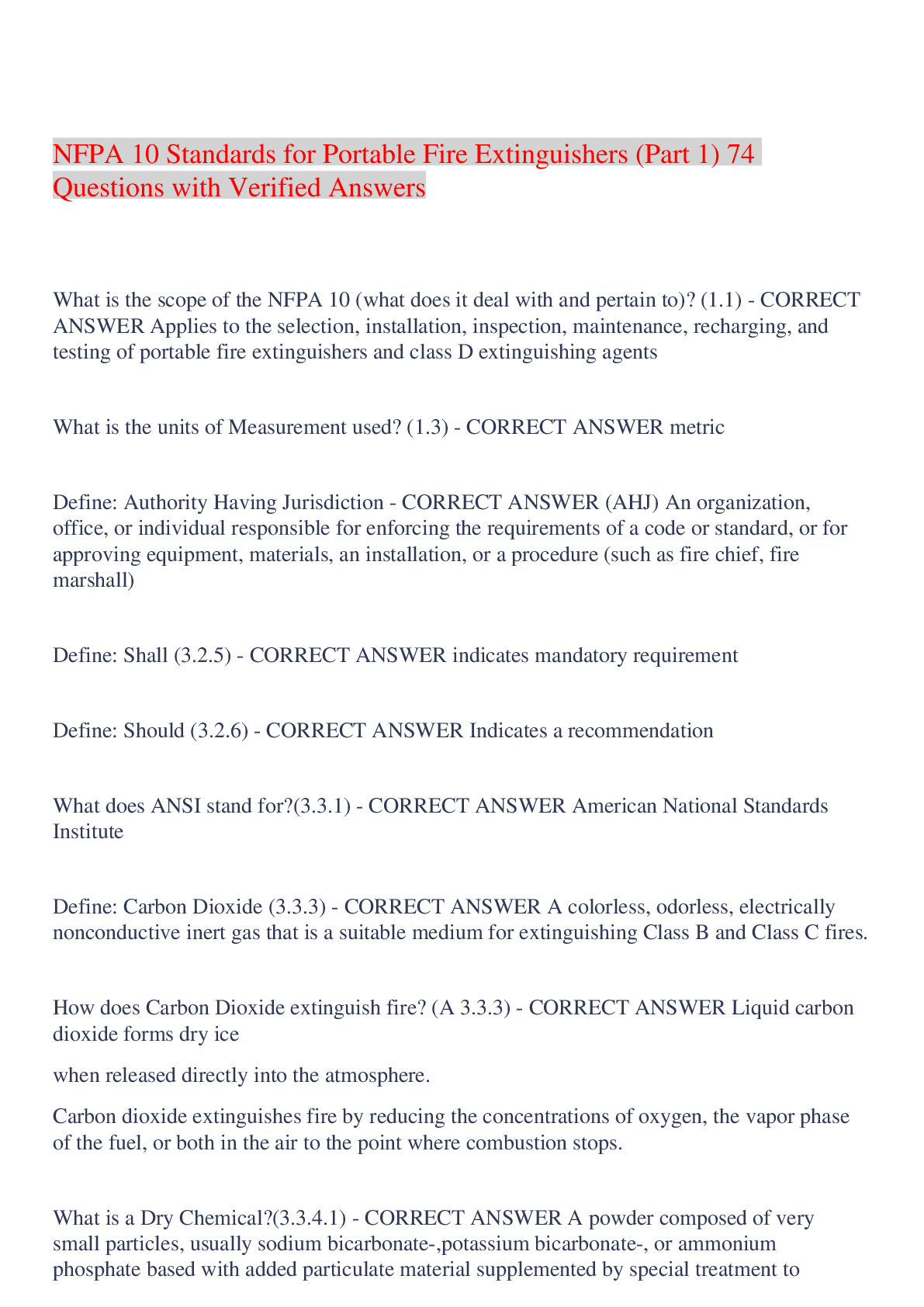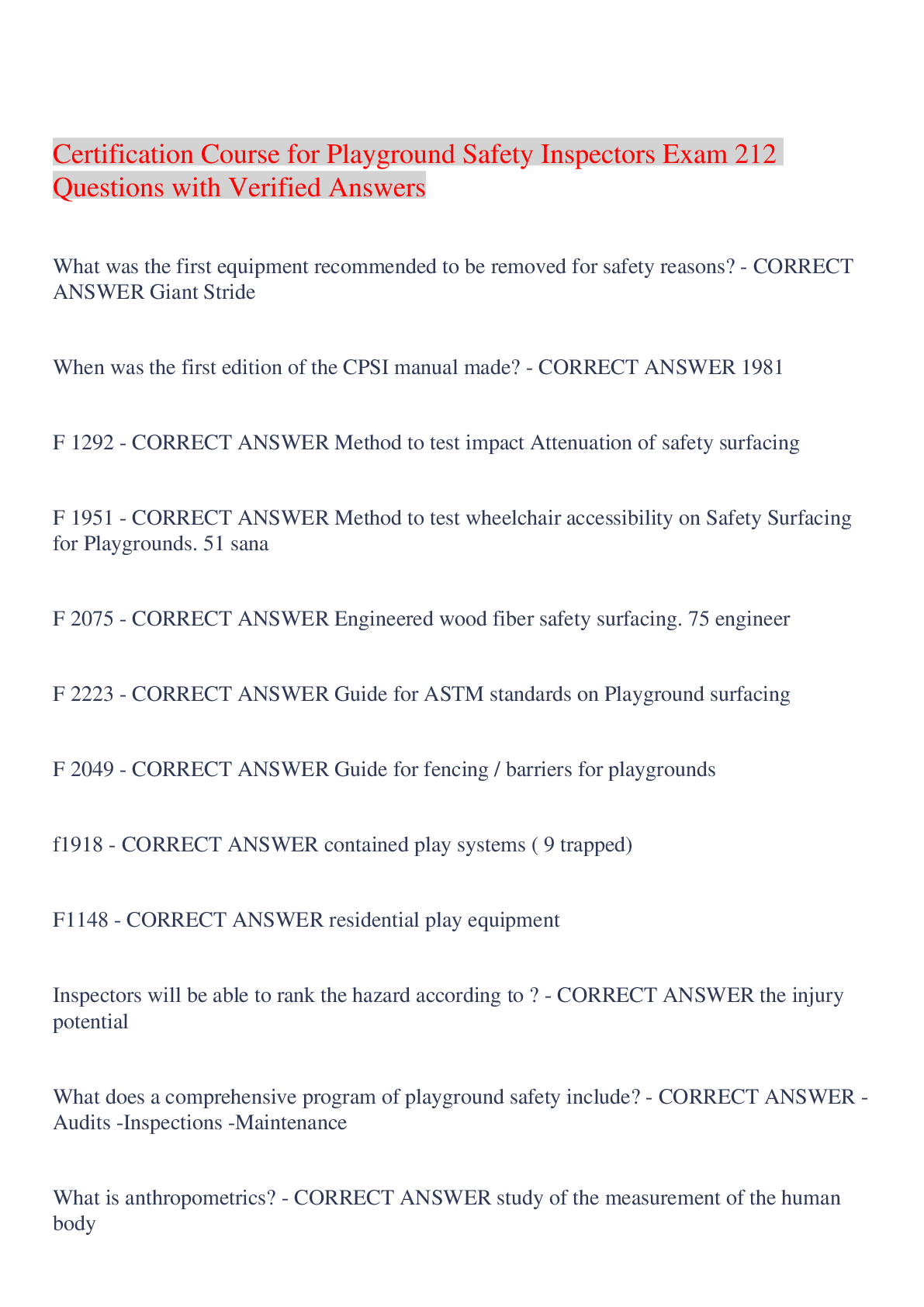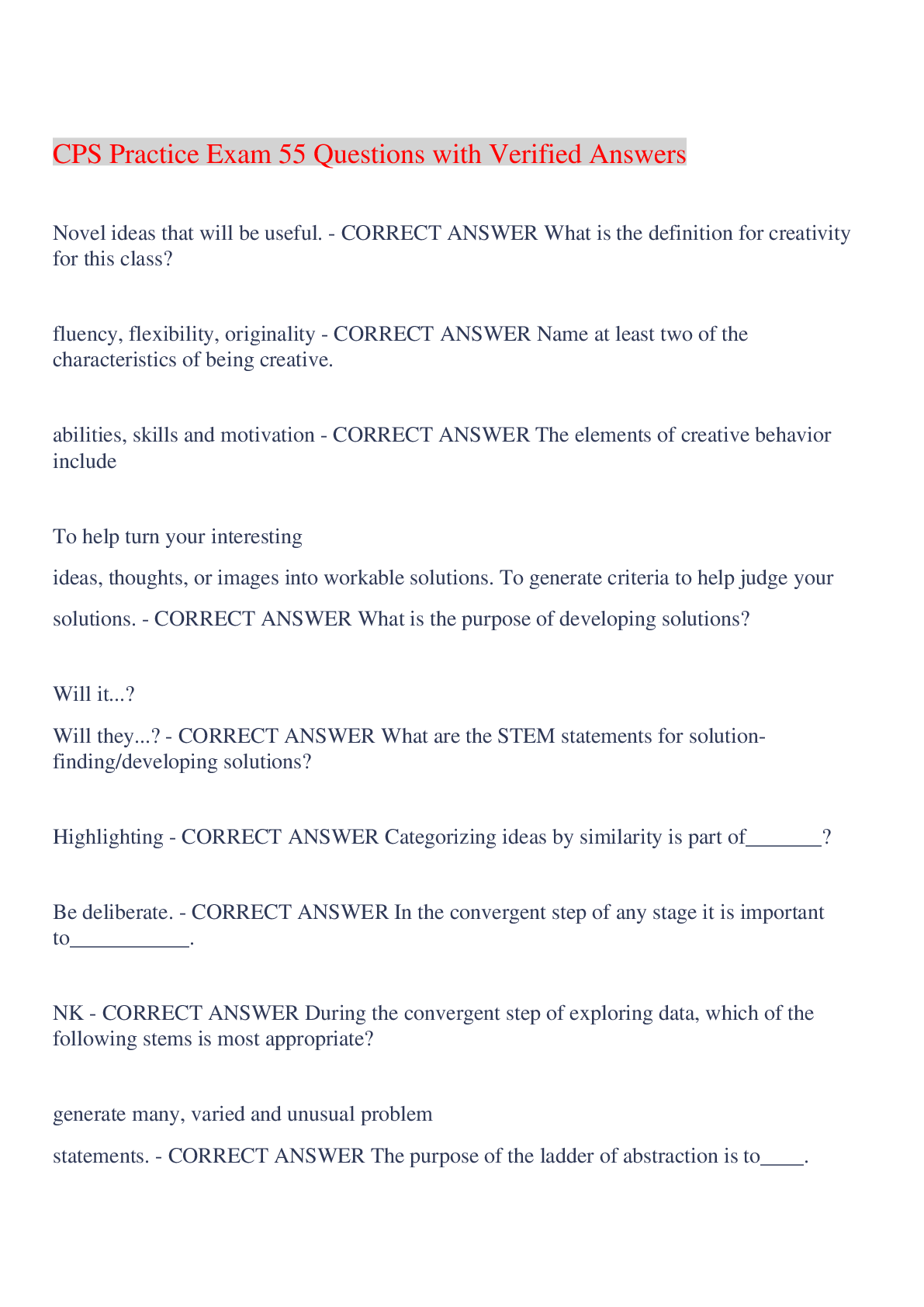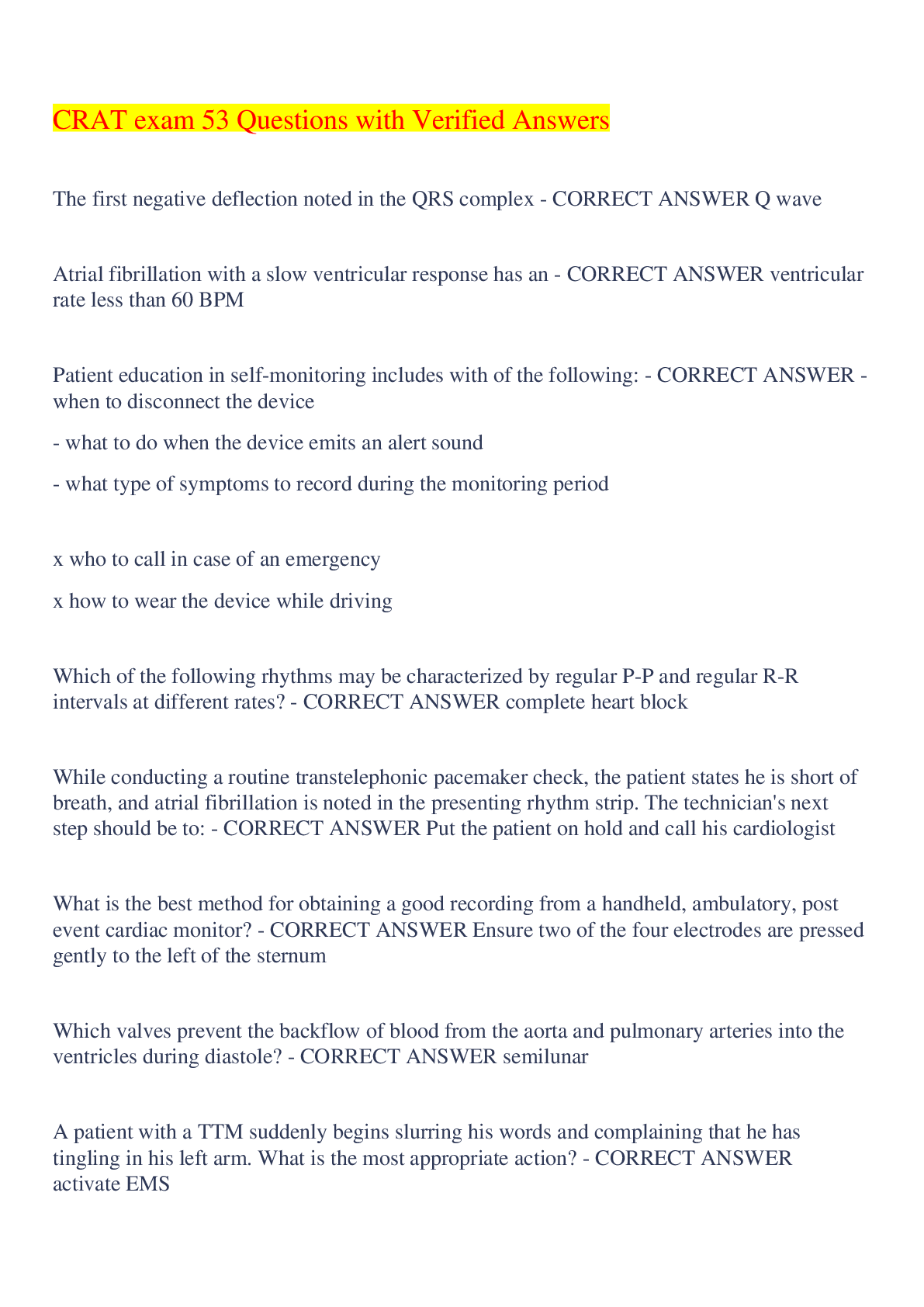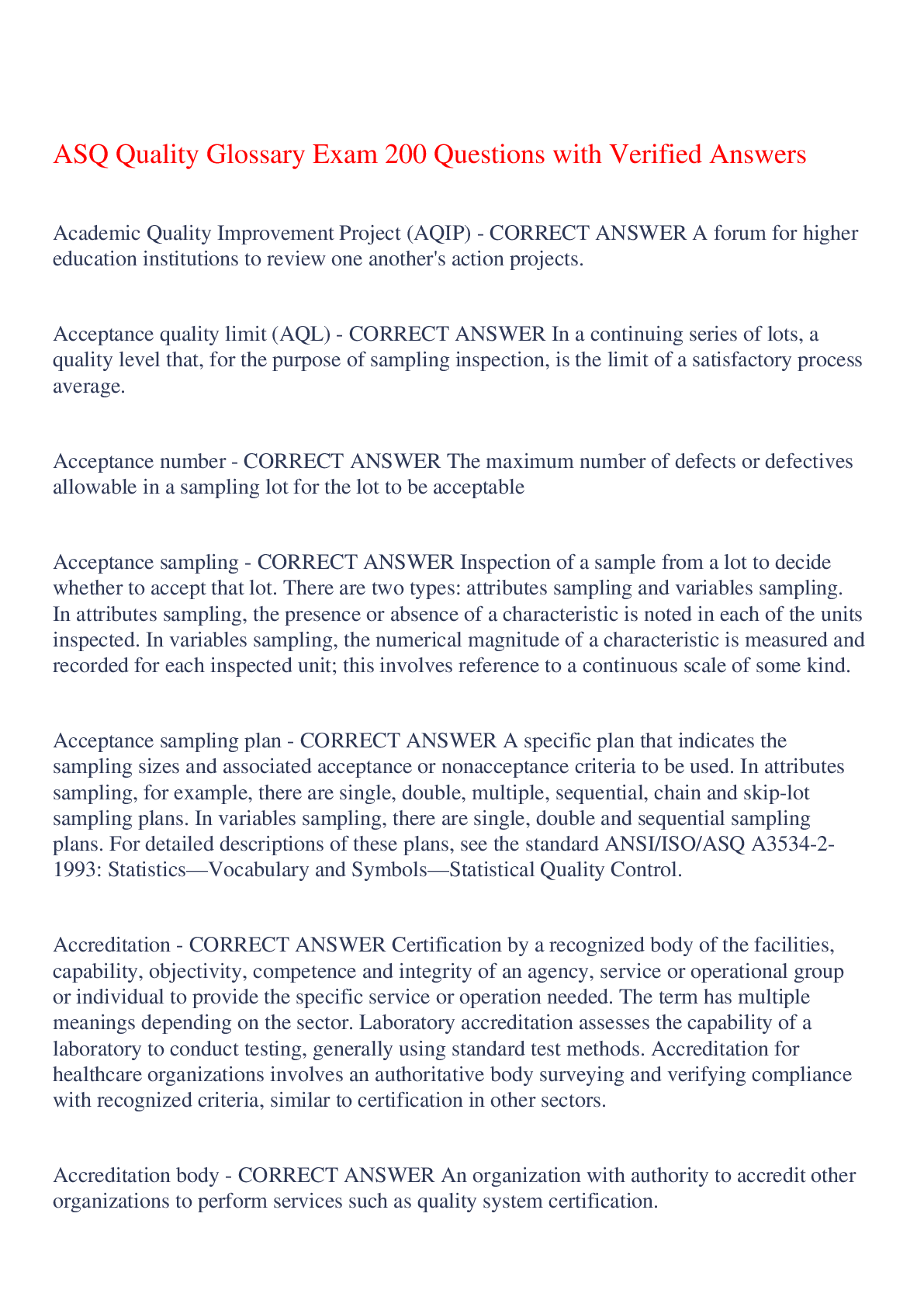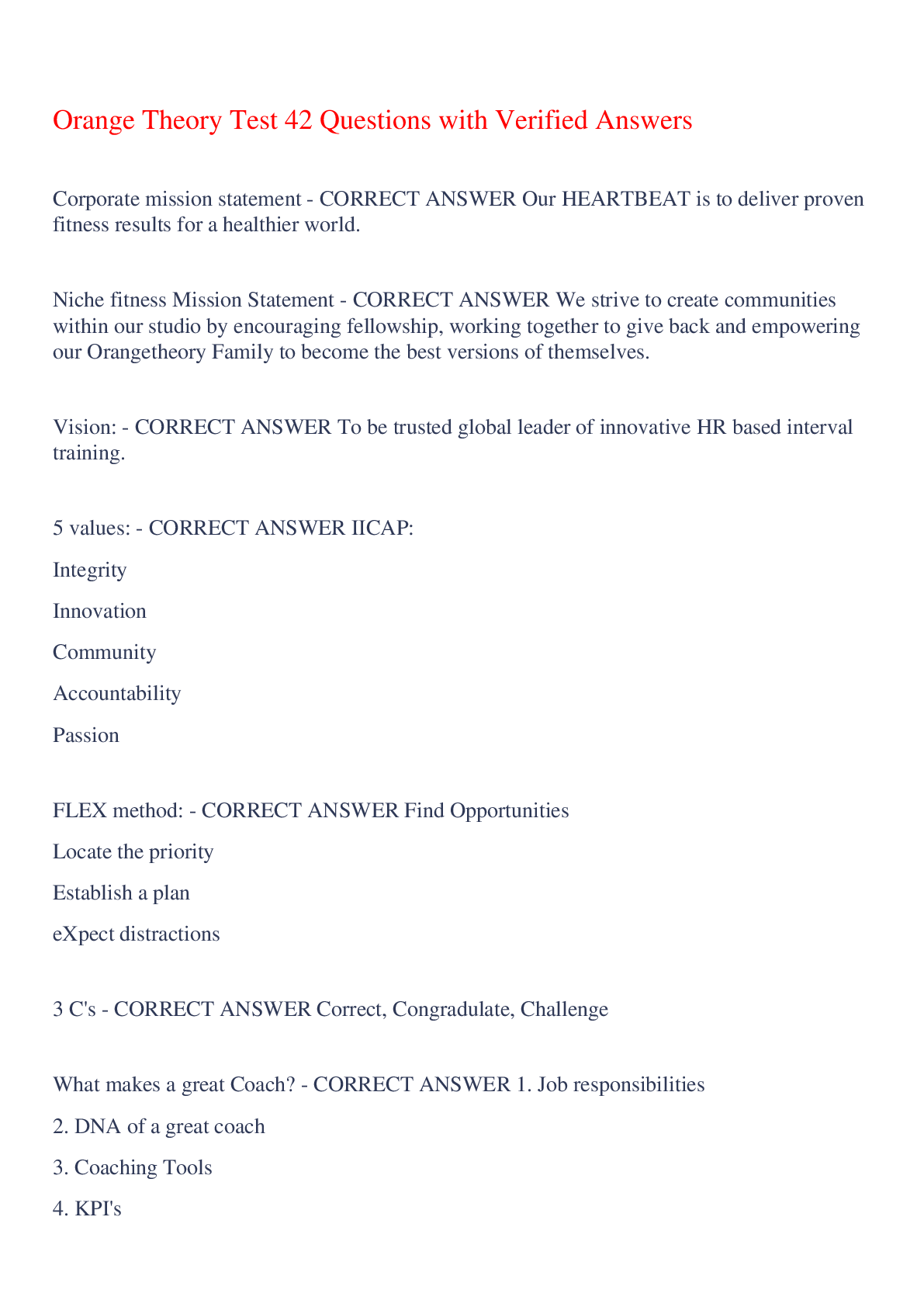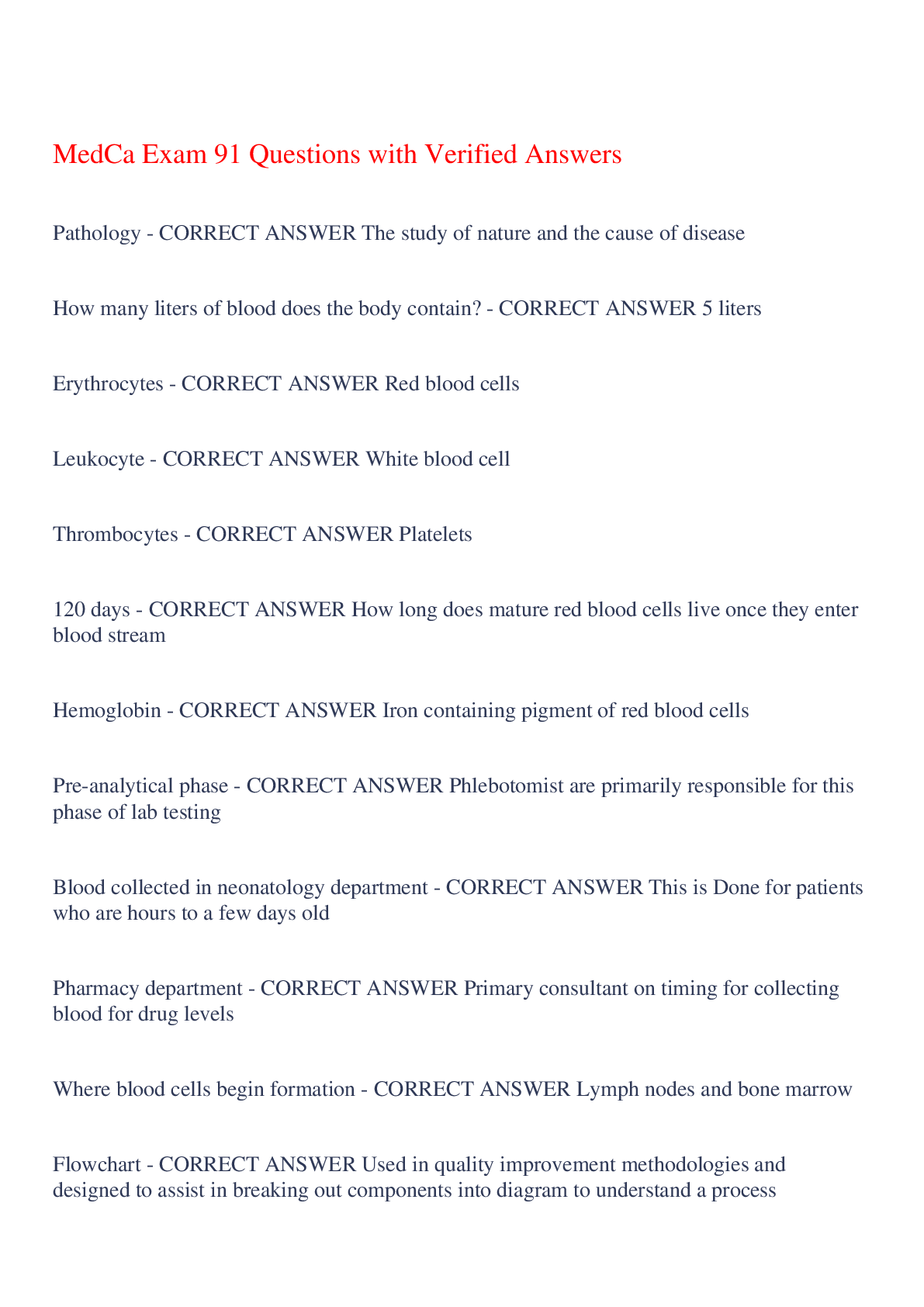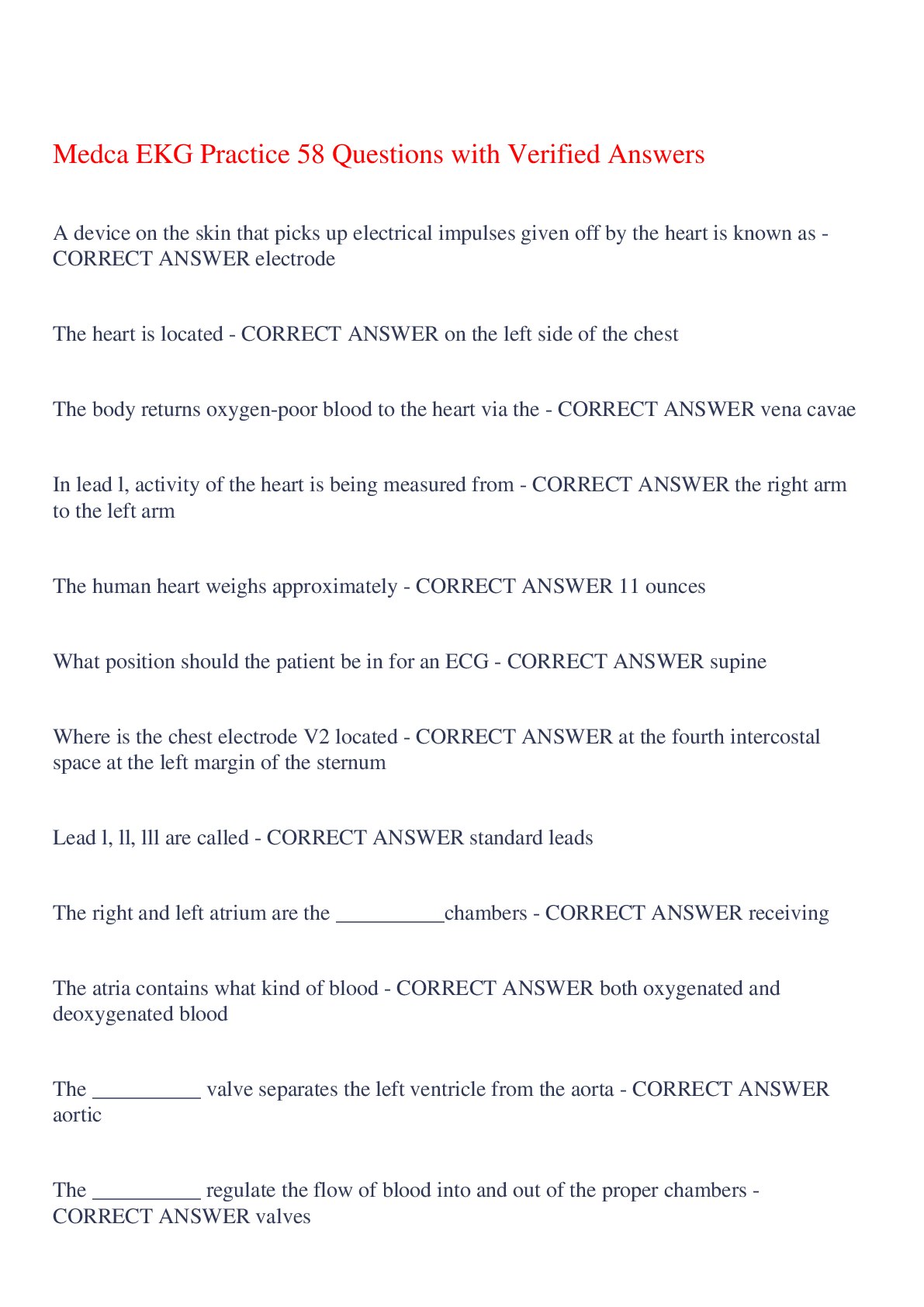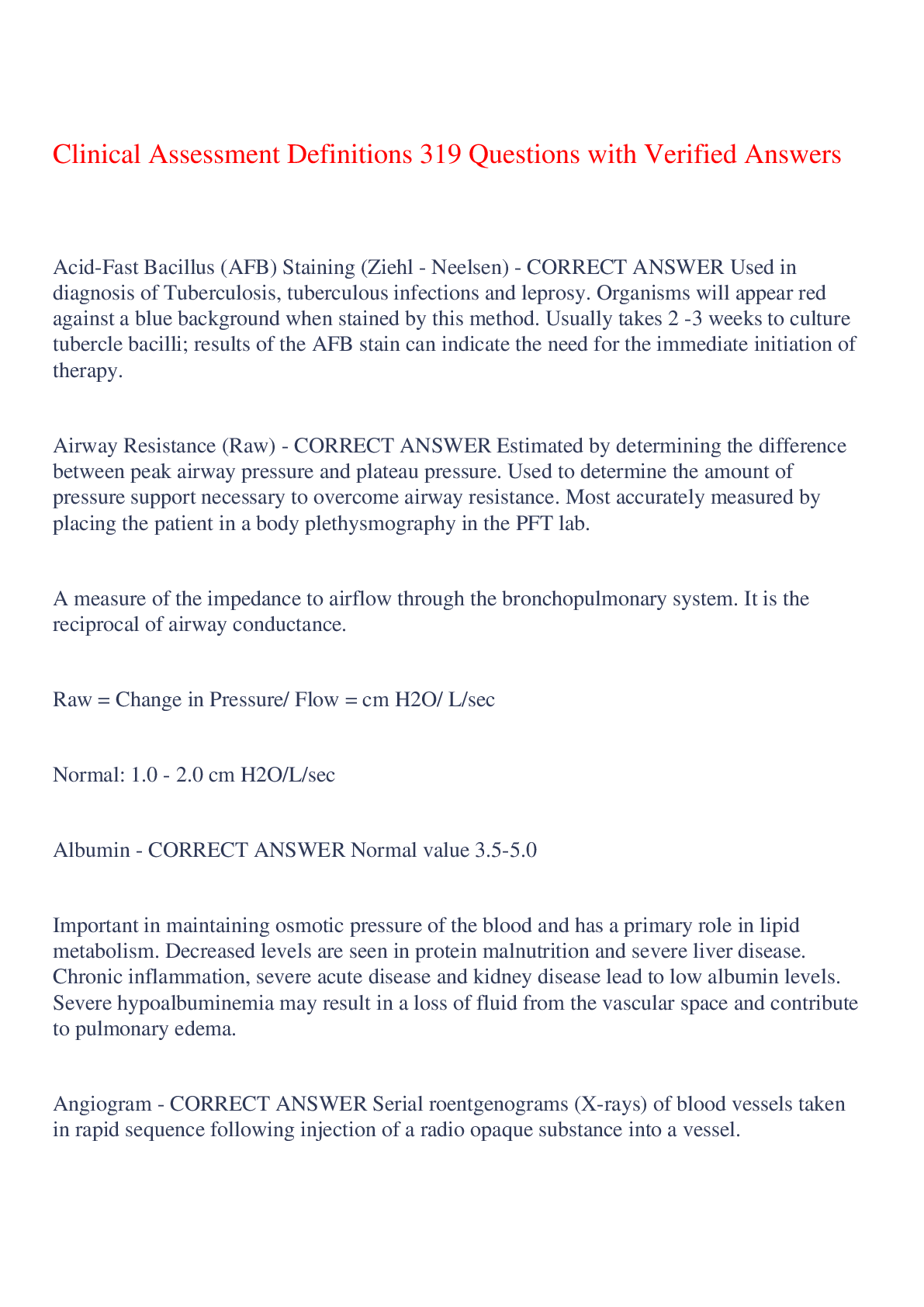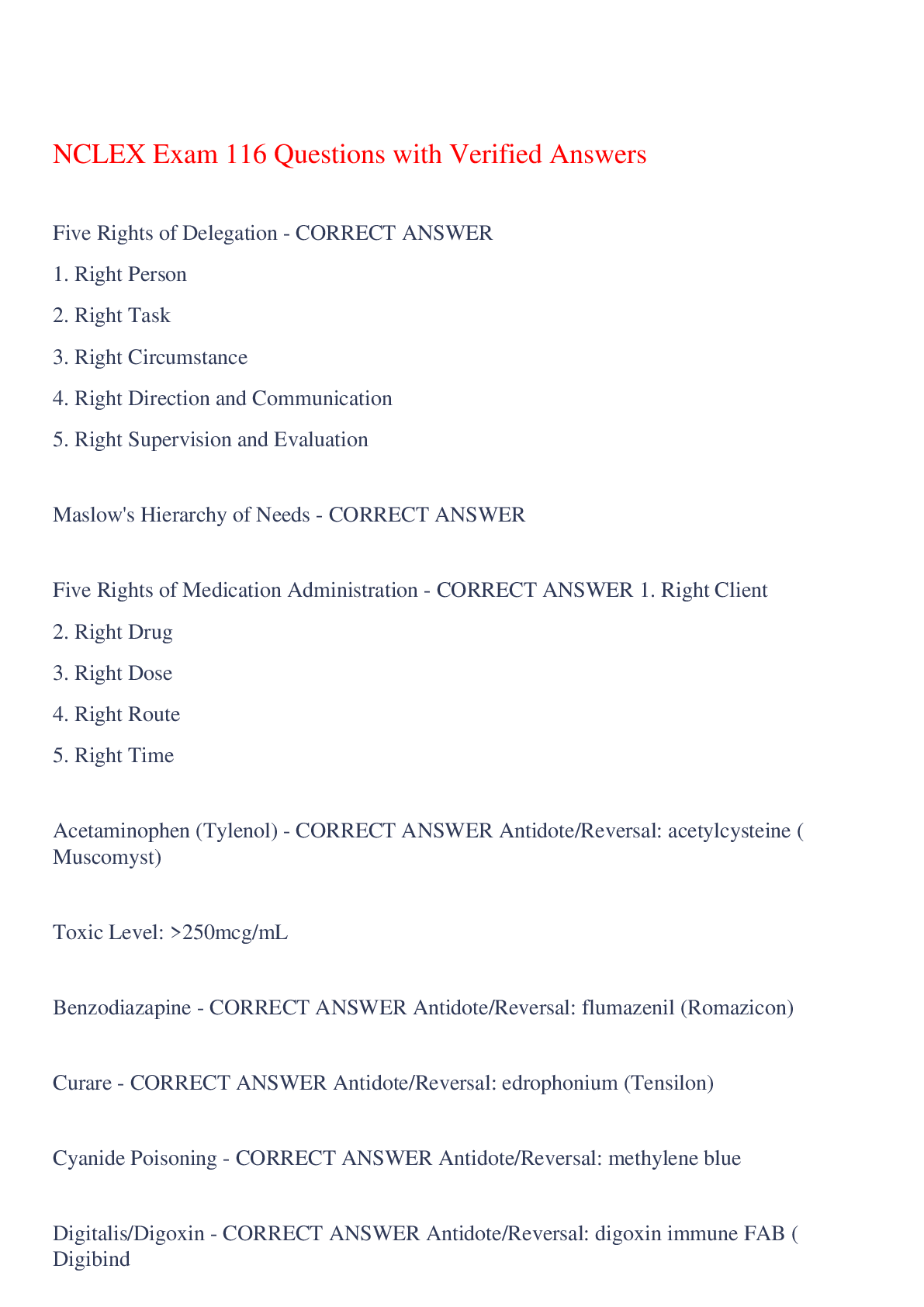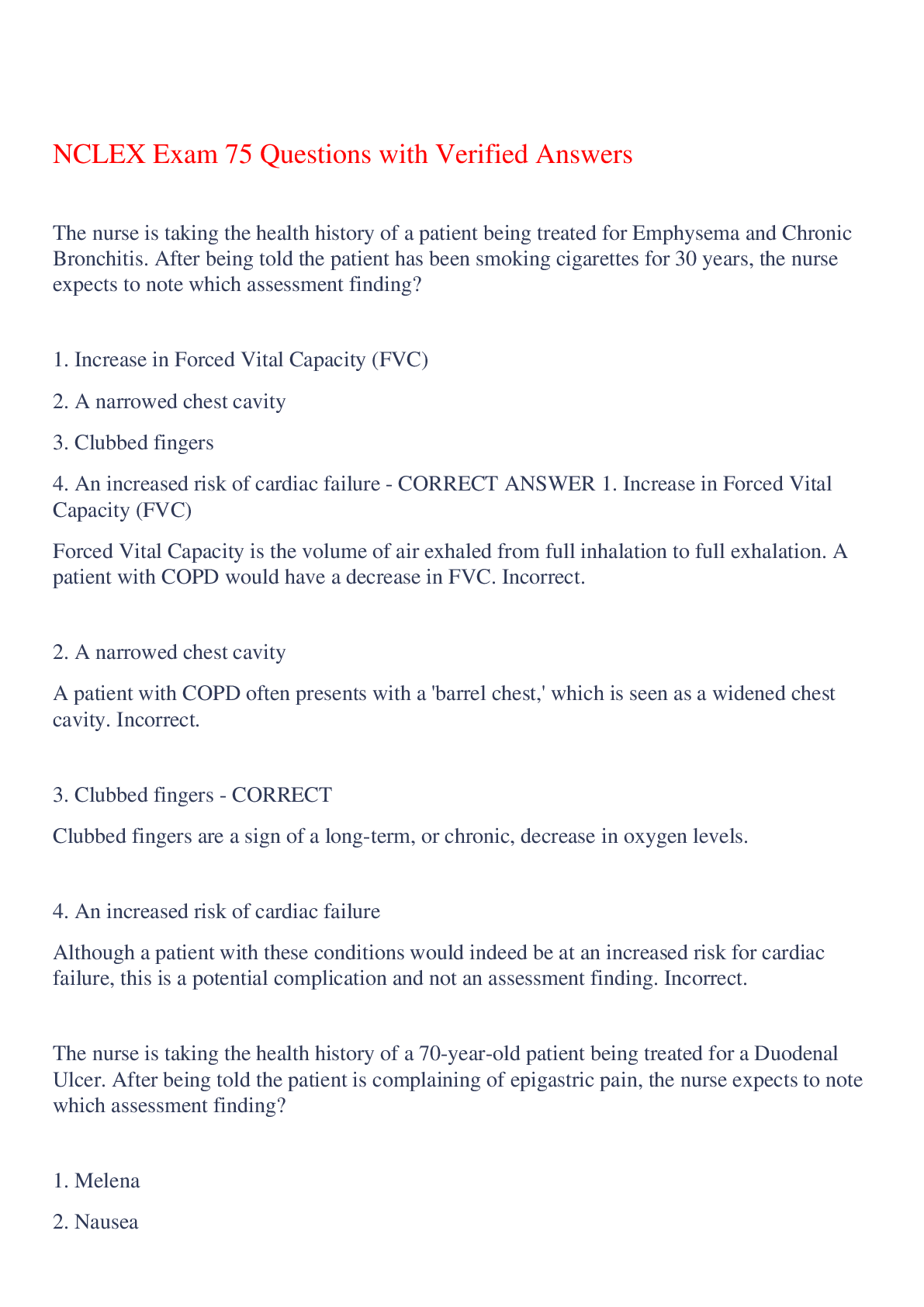USI Final Exam - Questions with Verified Answers
Document Content and Description Below
USI Final Exam - Questions with Verified Answers The Ohio River Valley: What & Where Region of fertile land along the Ohio River The Ohio River Valley: Historical Significance The point of contentio... n that sparked the French and Indian War. Both the French and British claimed it. They wanted the area because the rivers allowed for transportation. The Proclamation of 1763: What & Where Boundary that Britain established in the Appalachian Mountains, west of which white settlement was banned; also required any settlers already living west of the mountains to move back east. The Proclamation of 1763: Historical Significance Designed to prevent colonial tension between the Native Americans and the colonists due to the French and Indian War; was deeply resented by land-hungry colonists, prompting some to simply ignore it. Sugar Act 1764: What & Where Boston - British law of 1764 that taxed sugar and other colonial imports to raise money to pay for the defense of the colonies; lowered the tax on imported sugar to get more people to buy it & made smuggling penalties of molasses more harsh Sugar Act 1764: Historical Significance The first tax on Americans for raising revenue; Americans protested through boycotting British goods, and the tax was lowered Stamp Act: What & Where Boston - British law of 1765 that directly taxed a variety of paper items (e.g. newspapers, playing cards, legal documents, etc.) to raise revenue. Stamp Act: Response Formation of the Sons of Liberty, Stamp Act Congress, boycott of British goods Stamp Act: Historical Significance Raised the issue of taxation without representation. During the Stamp Act crisis Americans argued that there was a difference between taxing them for revenue and taxing them for the regulation of trade. They sustained that Britain did not have the authority to tax them for revenue. They believed that when they are taxed the government takes away their private property and they would have the right to do so only with the permission of its citizens. Since they had no representation in parliament they had no right to tax its colonial residents. Eventually repealed by British government after boycotts began to hurt British manufacturers/exporters. Articles of Confederation: What & Where Philadelphia - The first constitution of the United States; it created a central government with limited powers to preserve the rights and liberties of the states, and was replaced by the Constitution in 1788. Articles of Confederation: Rules Single house legislature Each state gets one vote - 9/13 votes to pass a law - 13/13 to amend (change) or ratify law Decentralized government -- states have all the power, the national government is weak CAN: Pass laws Negotiate treaties Set up post offices CAN'T: Tax Raise an army Regulate trade WHY: Deliberately making a government opposite of Parliament Articles of Confederation: Historical Significance They established the first national government and national constitution of the United States. The Articles created a loose confederation of sovereign states and a weak central government, leaving most of the power with the state governments. The need for a stronger Federal government soon became apparent following Shays' Rebellion and eventually led to the creation of the Constitution. The Great Compromise: What A proposal calling for a bicameral (meaning two chambers) legislature with equal representation for the states in one house and proportional representation in the other. The Great Compromise: Historical Significance Creates the Senate (equal representation) and the House of Representatives (proportional representation); Senate has 100 members (2 from each state), while the House has 435 (# from each state depends on the size of population) Ended the debate between Virginia and New Jersey plans over representation in the federal government at the Constitutional Convention and directly led to the creation of the Constitution Bill of Rights: What First ten amendments to Constitution, written as a response to calls for greater protection of certain basic rights of American citizens/individual liberties by anti-federalists Bill of Rights: Historical Significance To ensure ratification by all states, supporters of the Constitution (Federalists) agreed to add a group of amendments that would serve as the Bill of Rights. Many against the Constitution ( Anti-Federalists ) refused to ratify unless such individual rights were protected. Popular Sovereignty: What A controversial political doctrine according to which the people of federal territories should decide for themselves whether their territories would enter the Union as free or slave states. Popular Sovereignty: Historical Significance Provided politicians with a convenient way to circumvent the slavery debate, maintain party unity, and promote sectional harmony. Seneca Falls Convention (1848) the first national women's rights convention at which the Declaration of Sentiments was written Declaration of Sentiments: Purpose to dramatize the denied citizenship claims of elite women during a period when the early republic's founding documents privileged white propertied males. Dred Scott v. Sanford: What Supreme Court case that decided US Congress did not have the power to prohibit slavery in federal territories and slaves, as private property, could not be taken away without due process - basically slaves would remain slaves in non-slave states and slaves could not sue because they were not citizens Dred Scott v. Sanford: Historical Significance Ruled that Americans of African descent, whether free or slave, were not American citizens and could not sue in federal court. The Court also ruled that Congress lacked power to ban slavery in the U.S. territories. Compromise of 1850: What Slavery becomes outlawed in Washington D.C., California is admitted as a free state, Utah and New Mexico will determine whether slavery is allowed through popular sovereignty, $10 million for texas, Fugitive Slave Act is passed (IMPORTANT) [Show More]
Last updated: 4 weeks ago
Preview 1 out of 20 pages
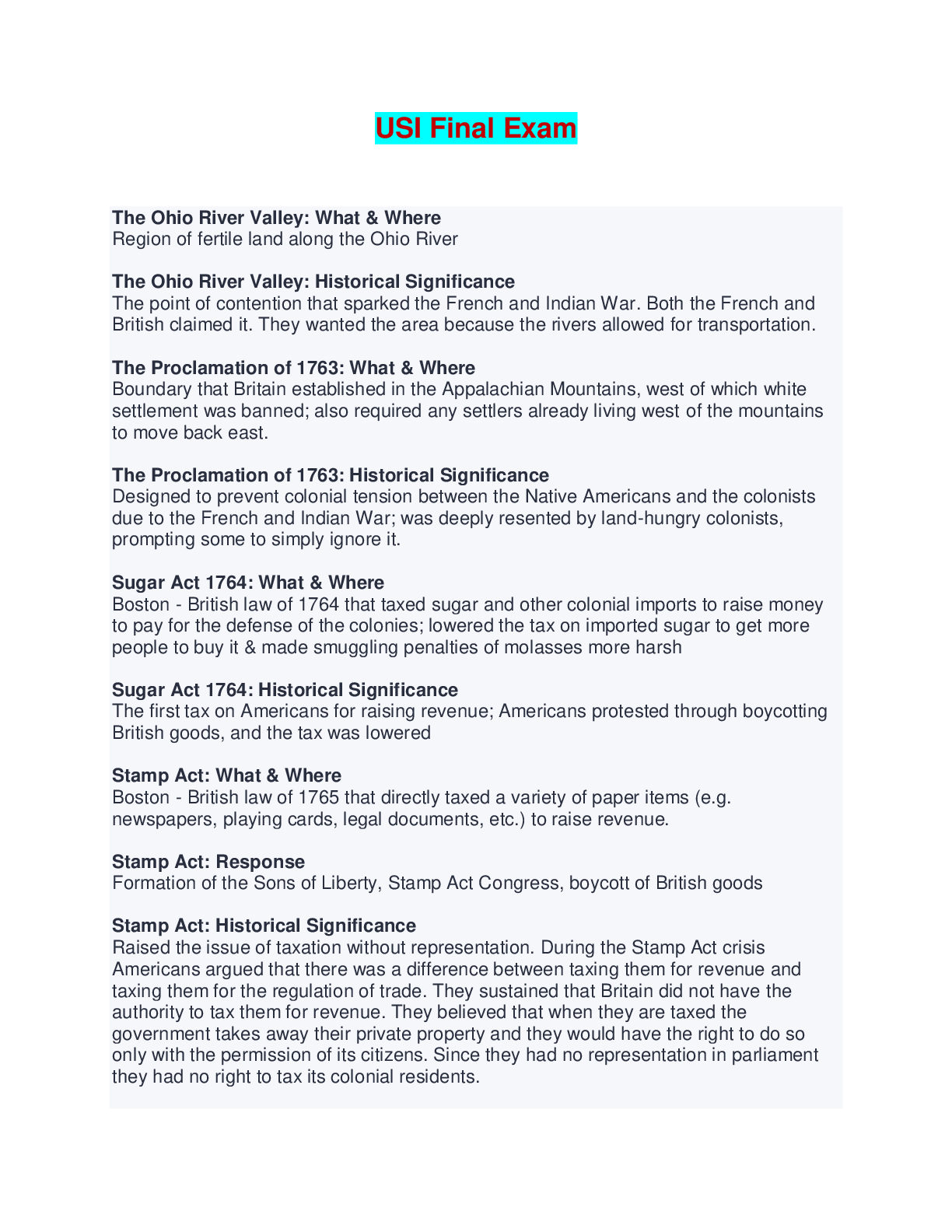
Reviews( 0 )
Document information
Connected school, study & course
About the document
Uploaded On
Apr 03, 2024
Number of pages
20
Written in
Additional information
This document has been written for:
Uploaded
Apr 03, 2024
Downloads
0
Views
13

